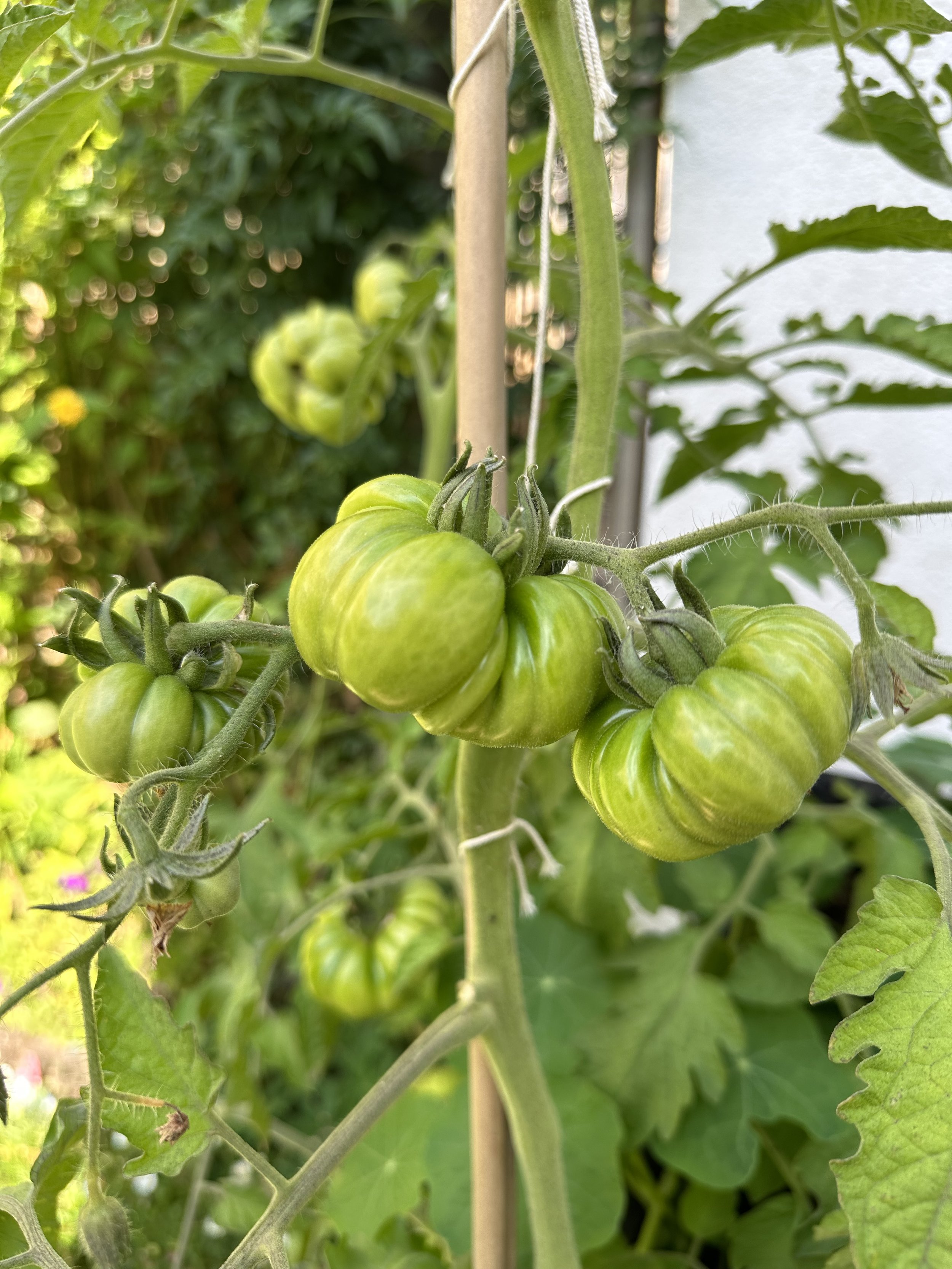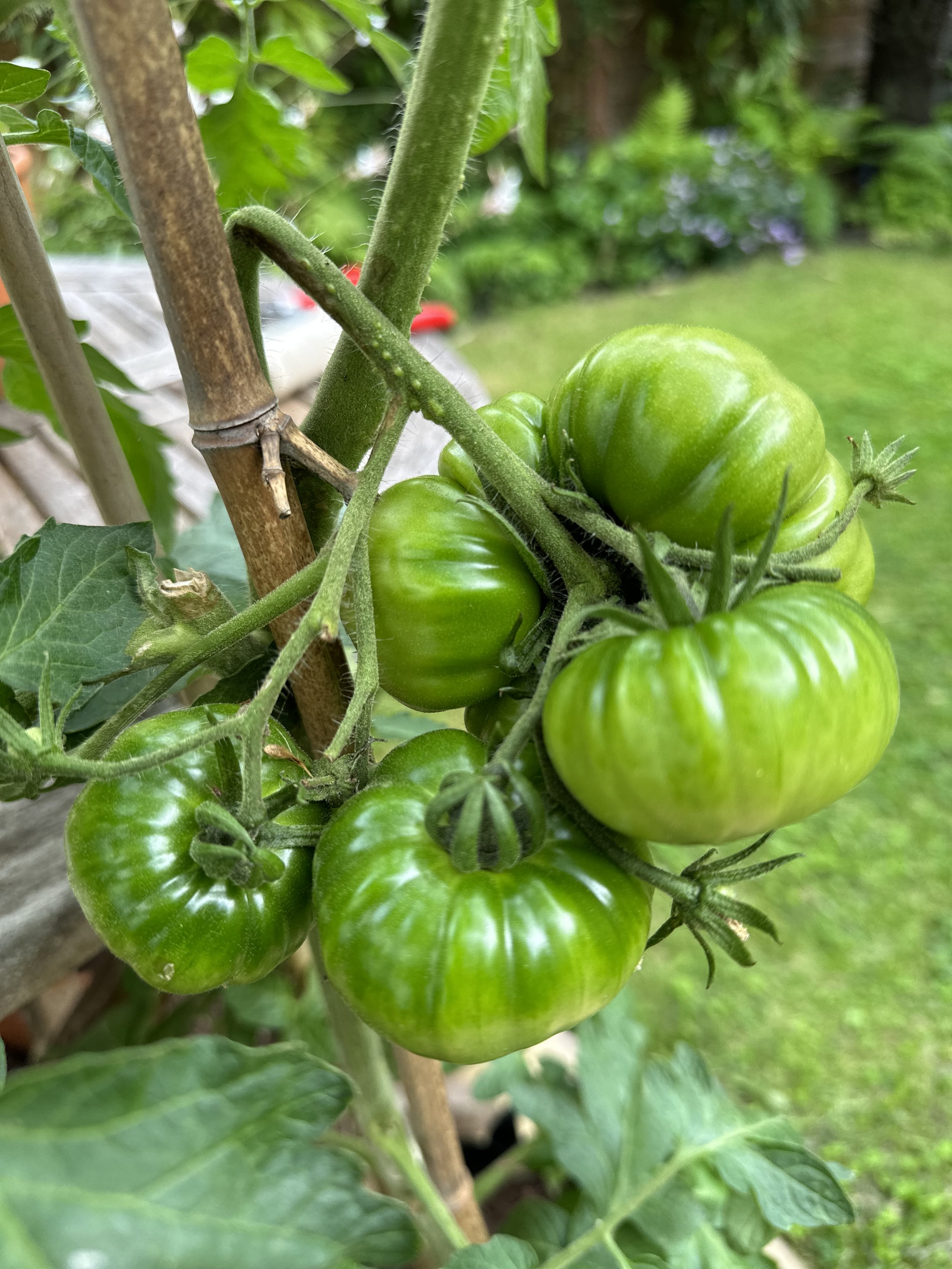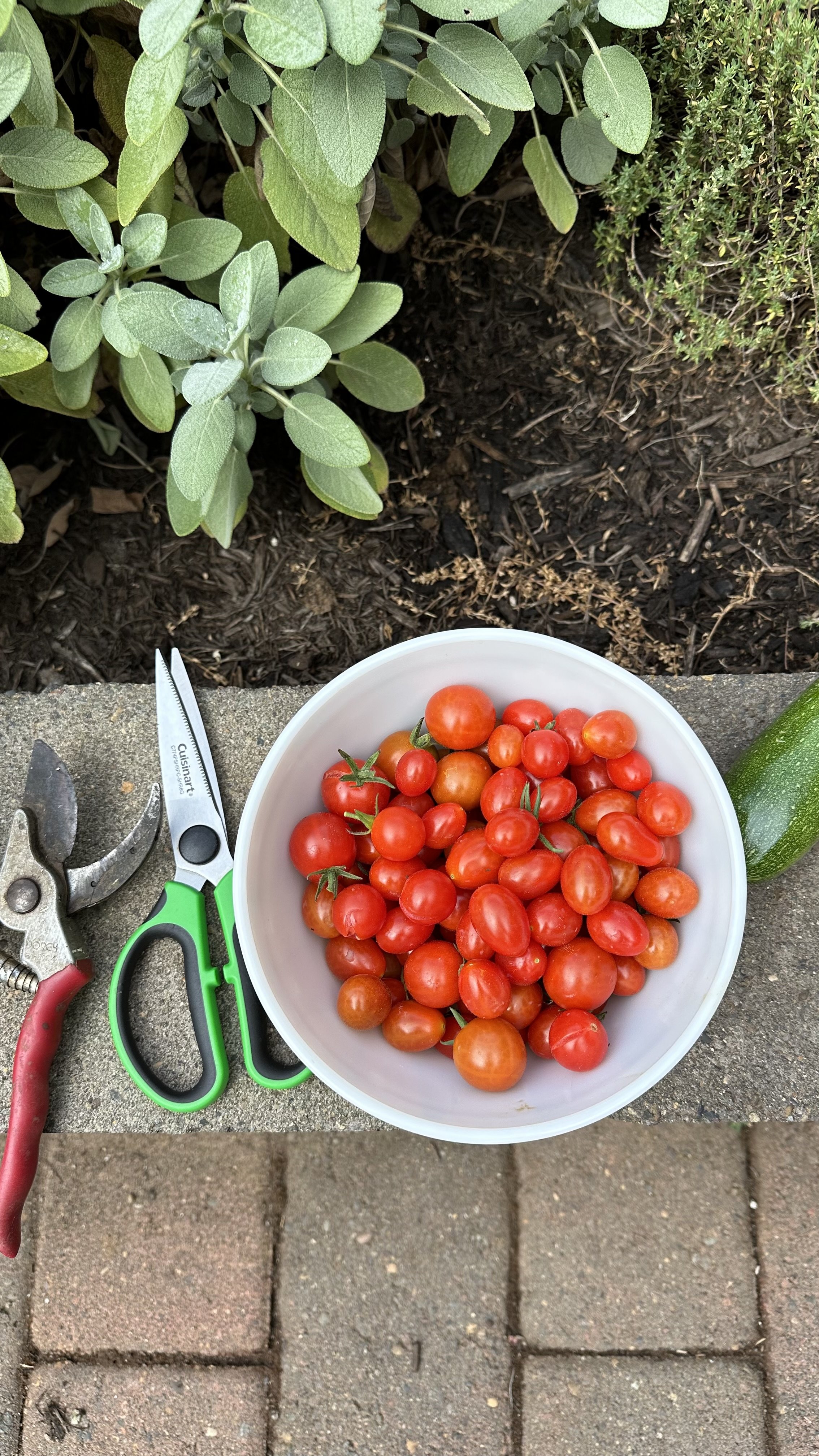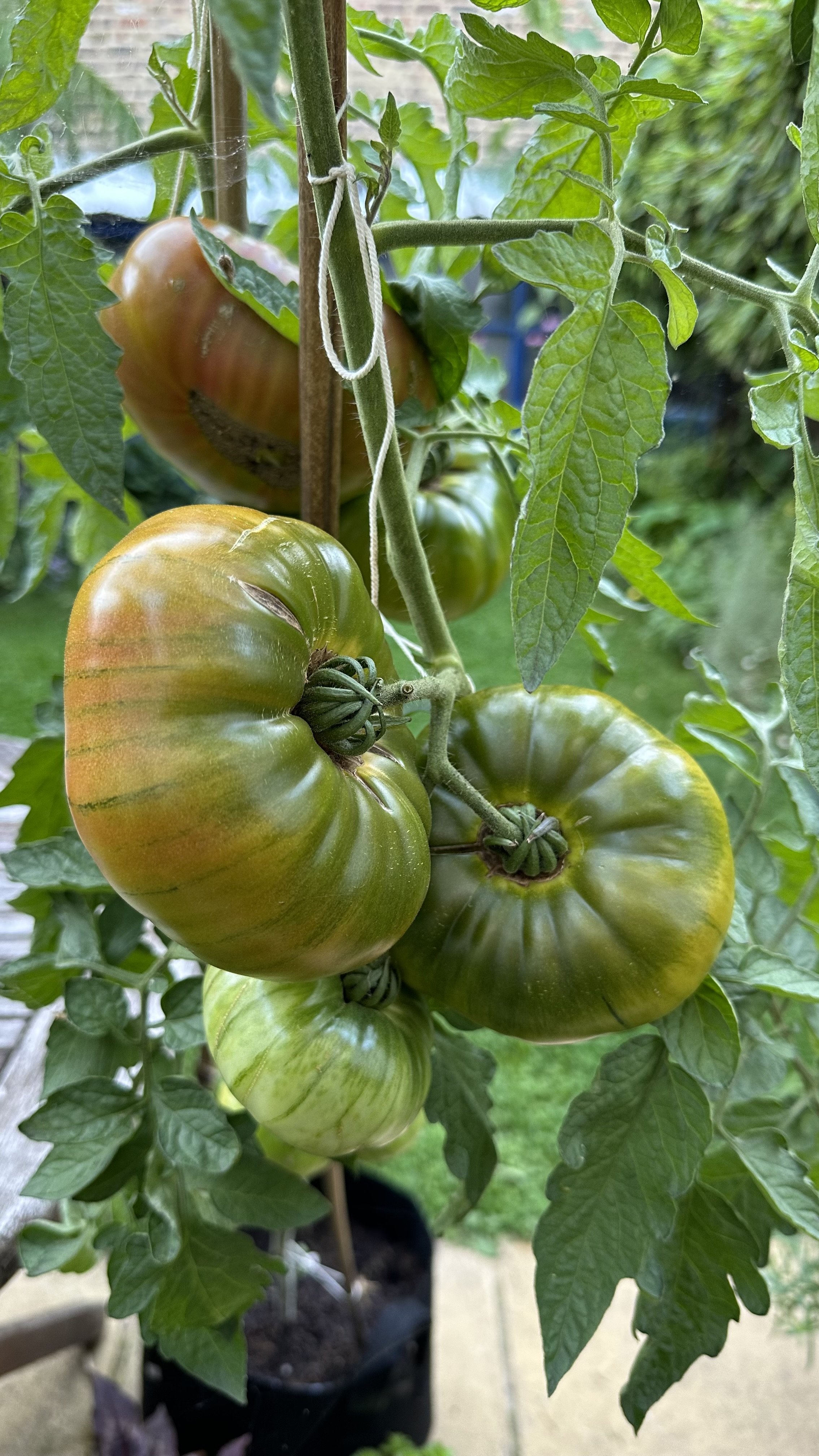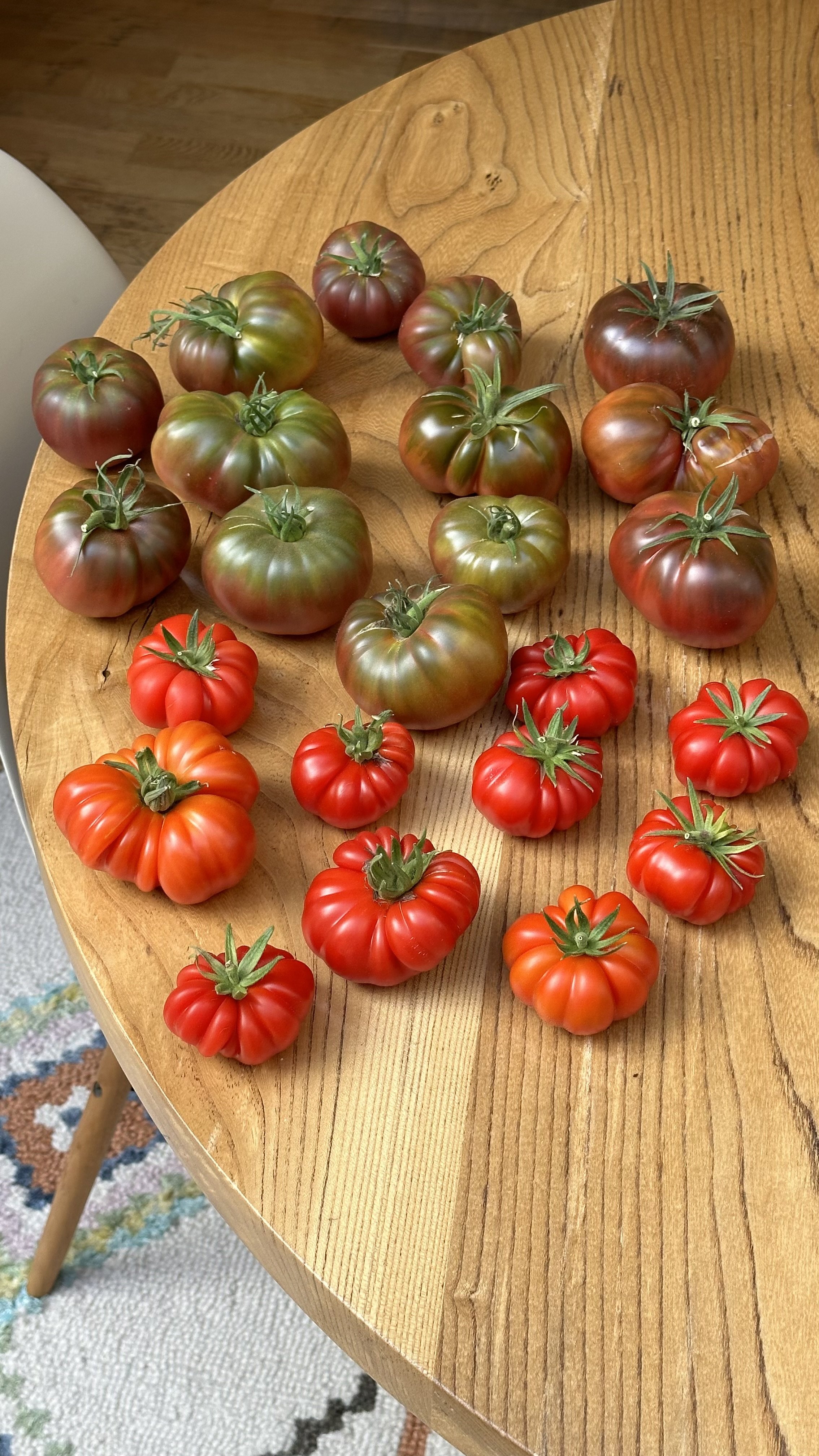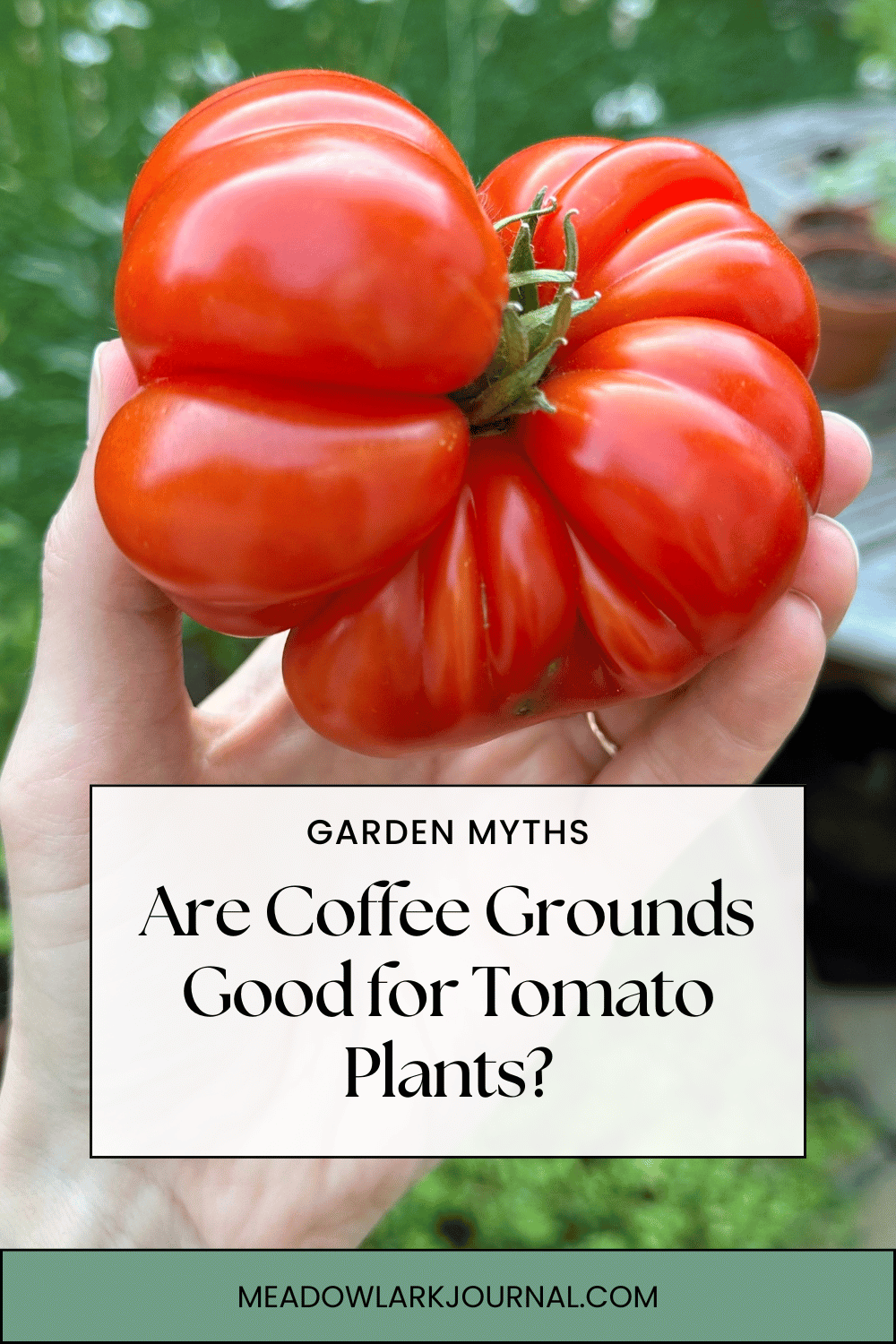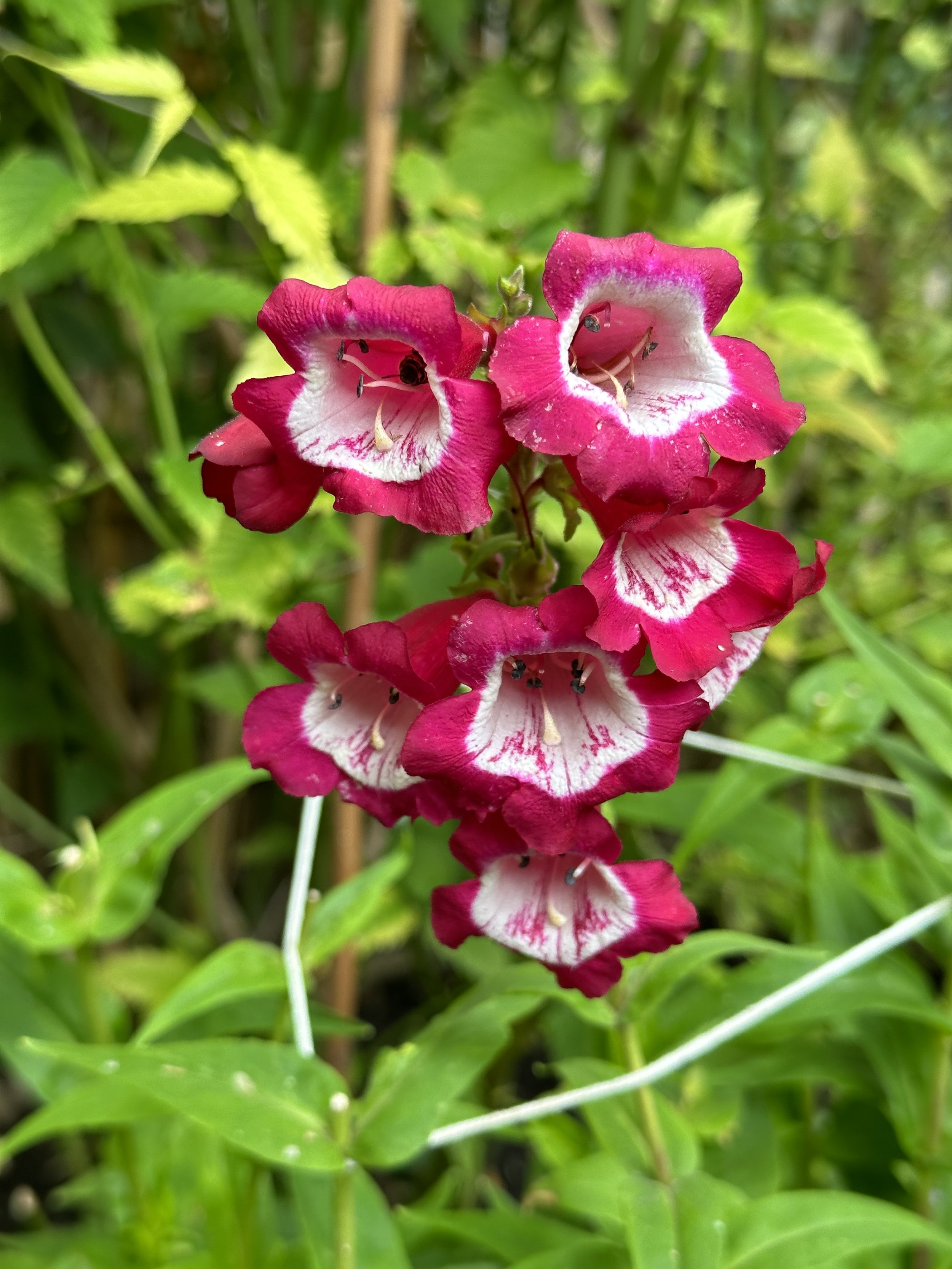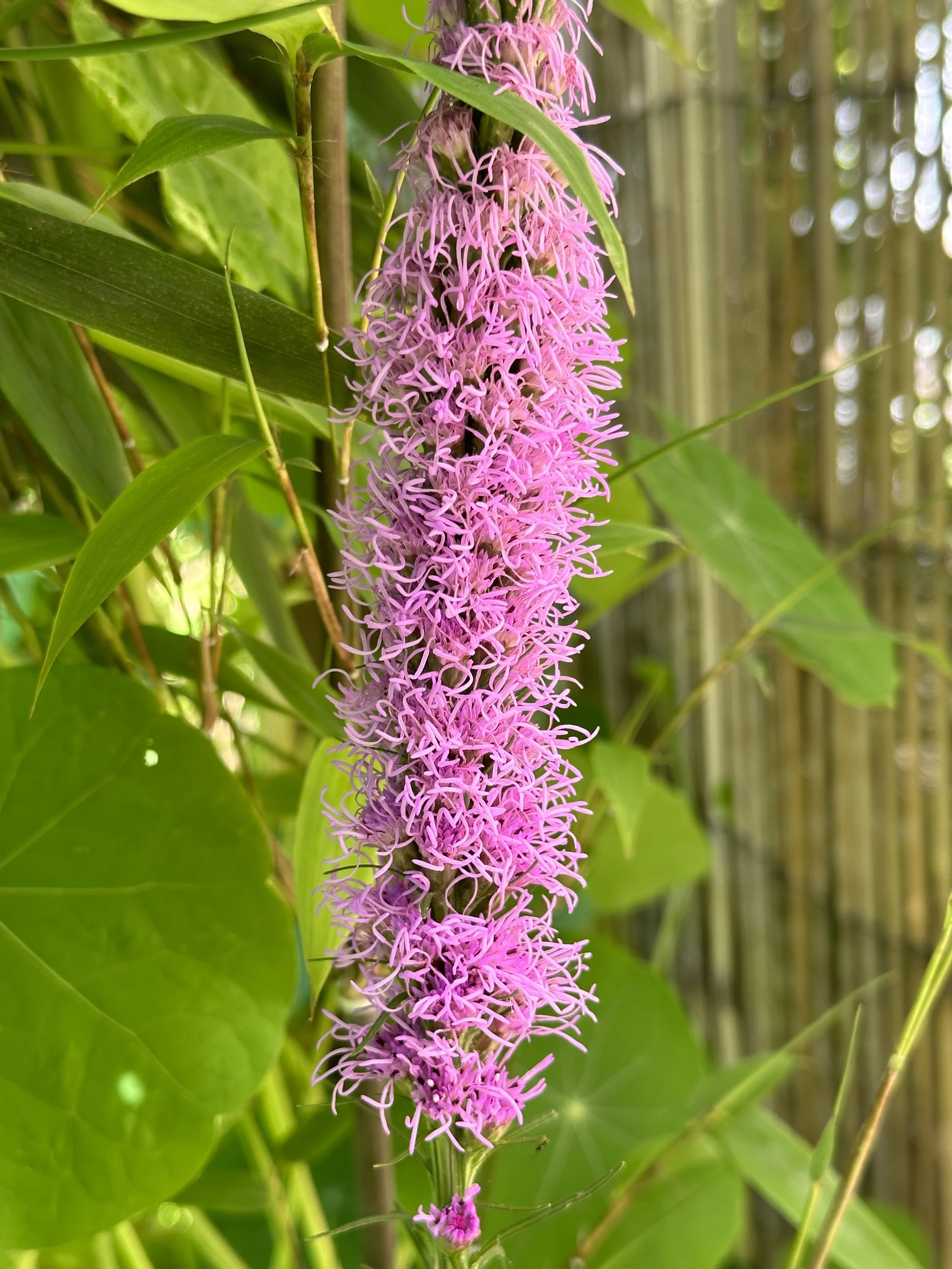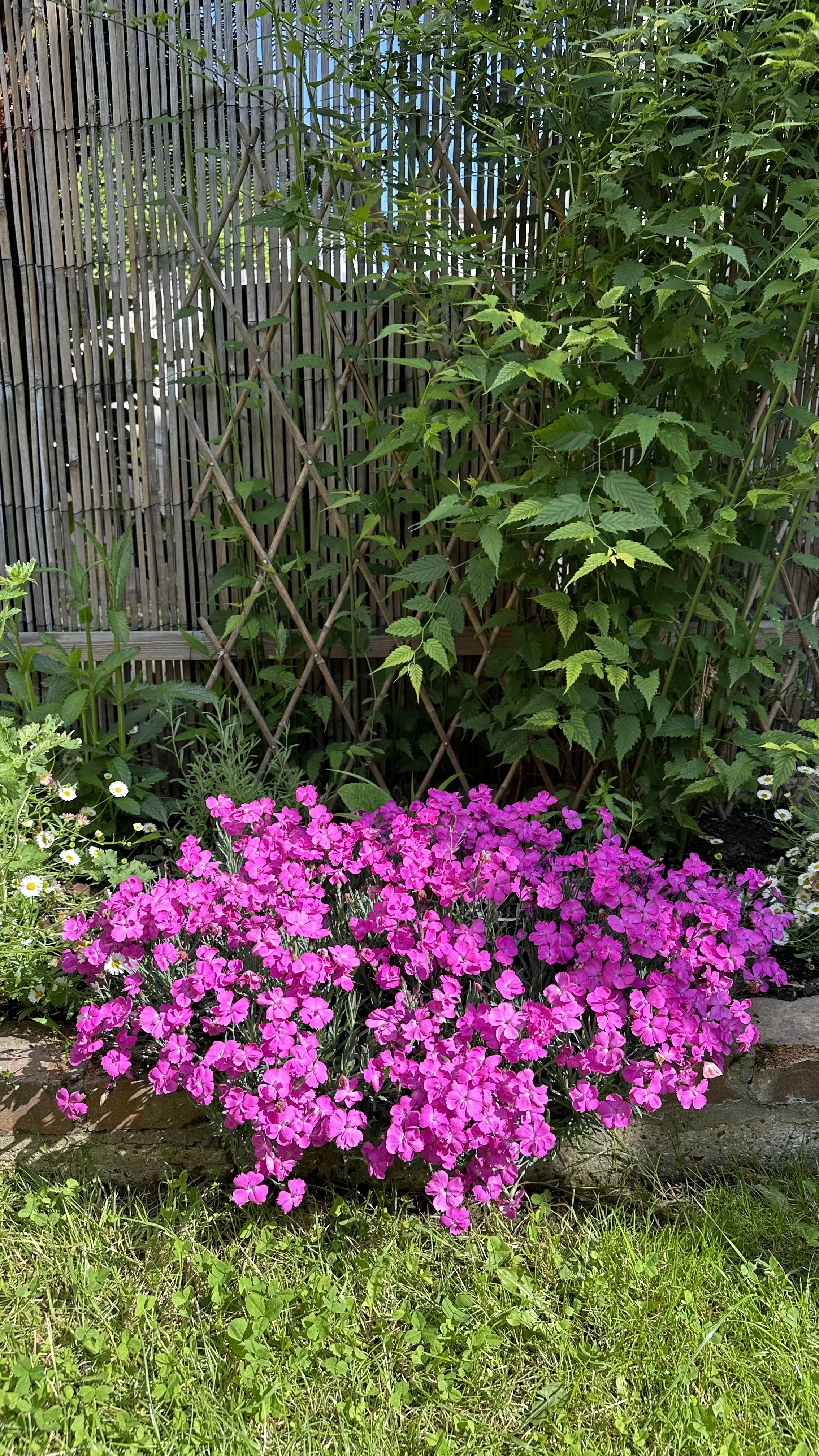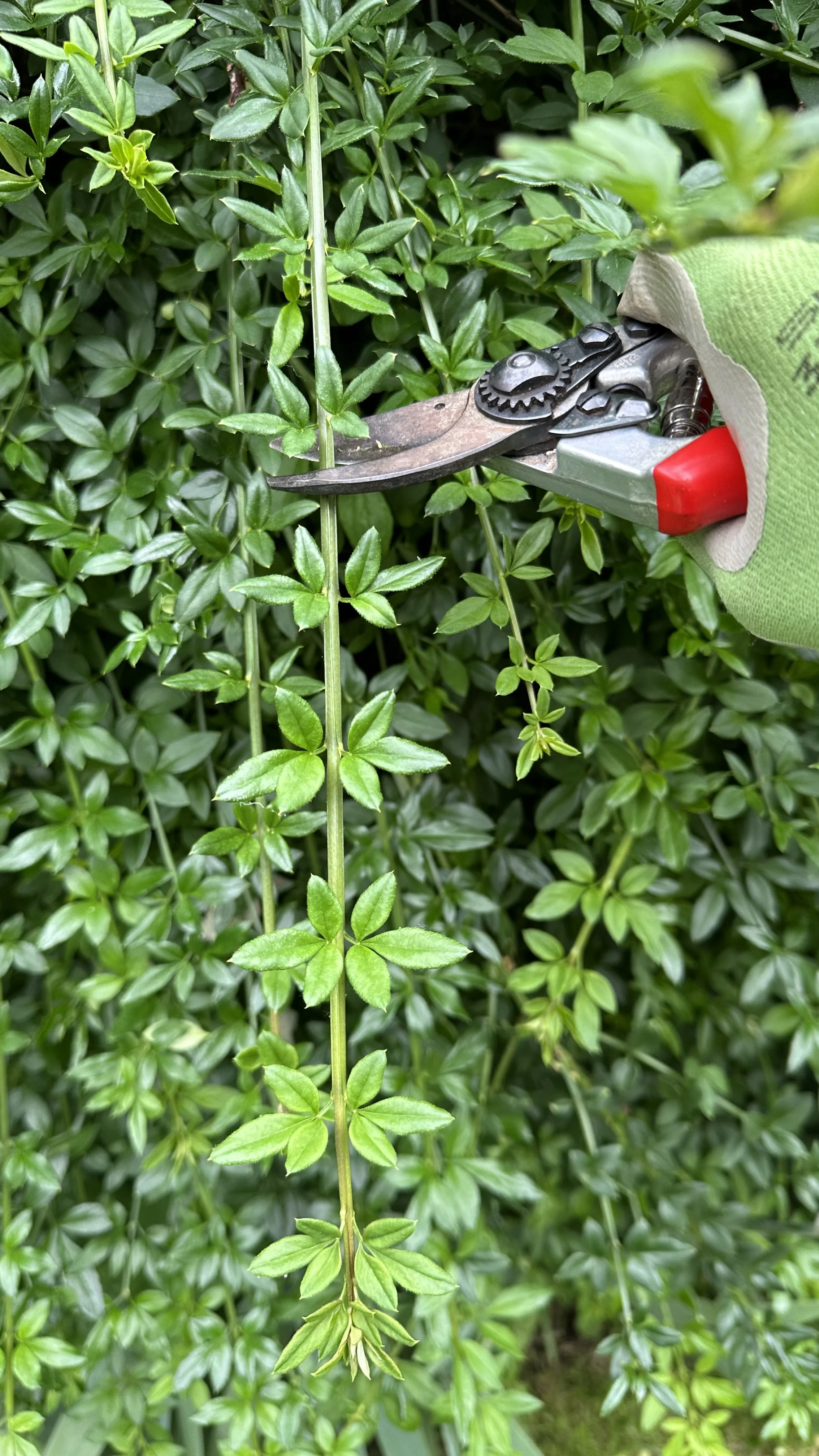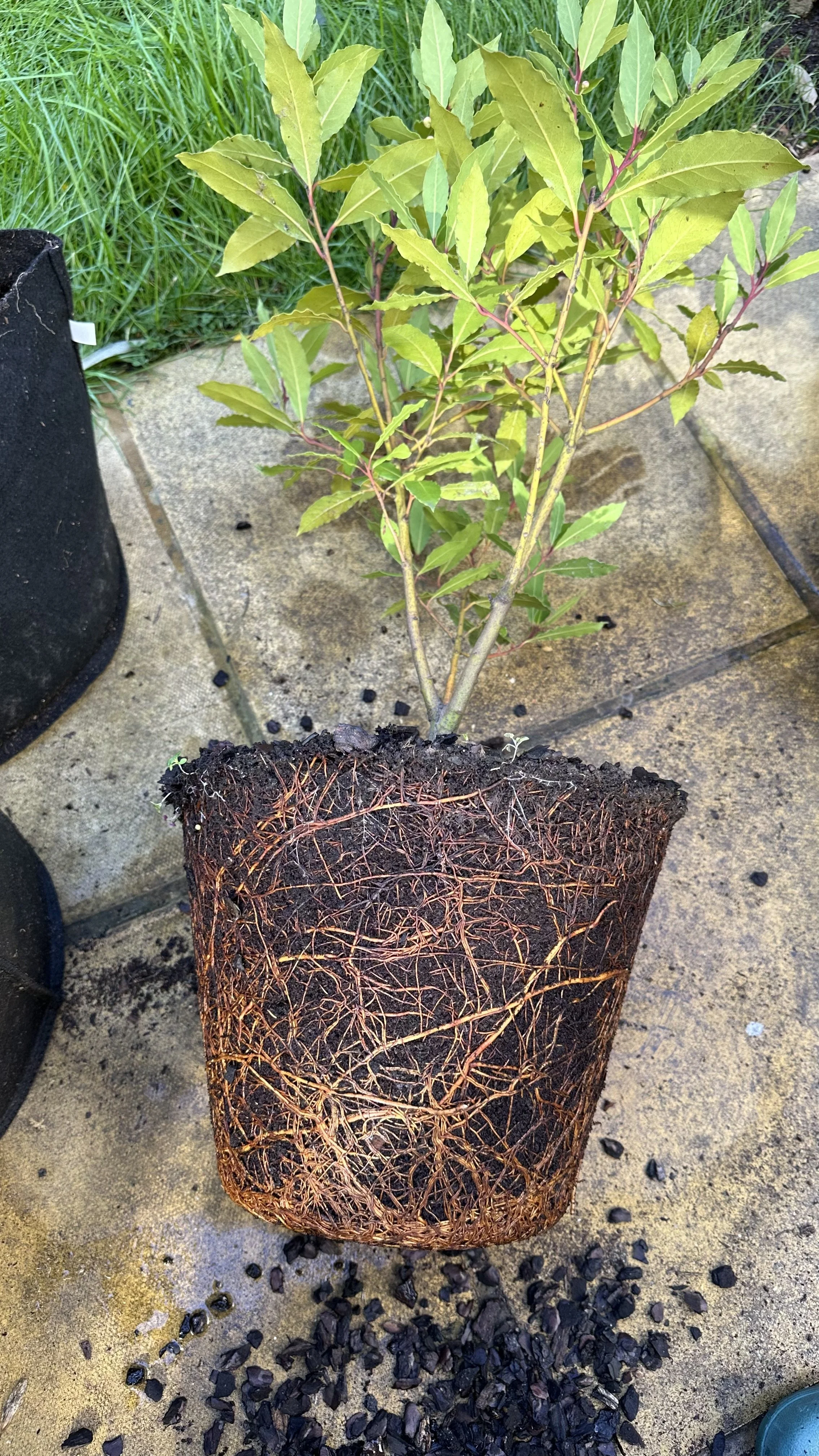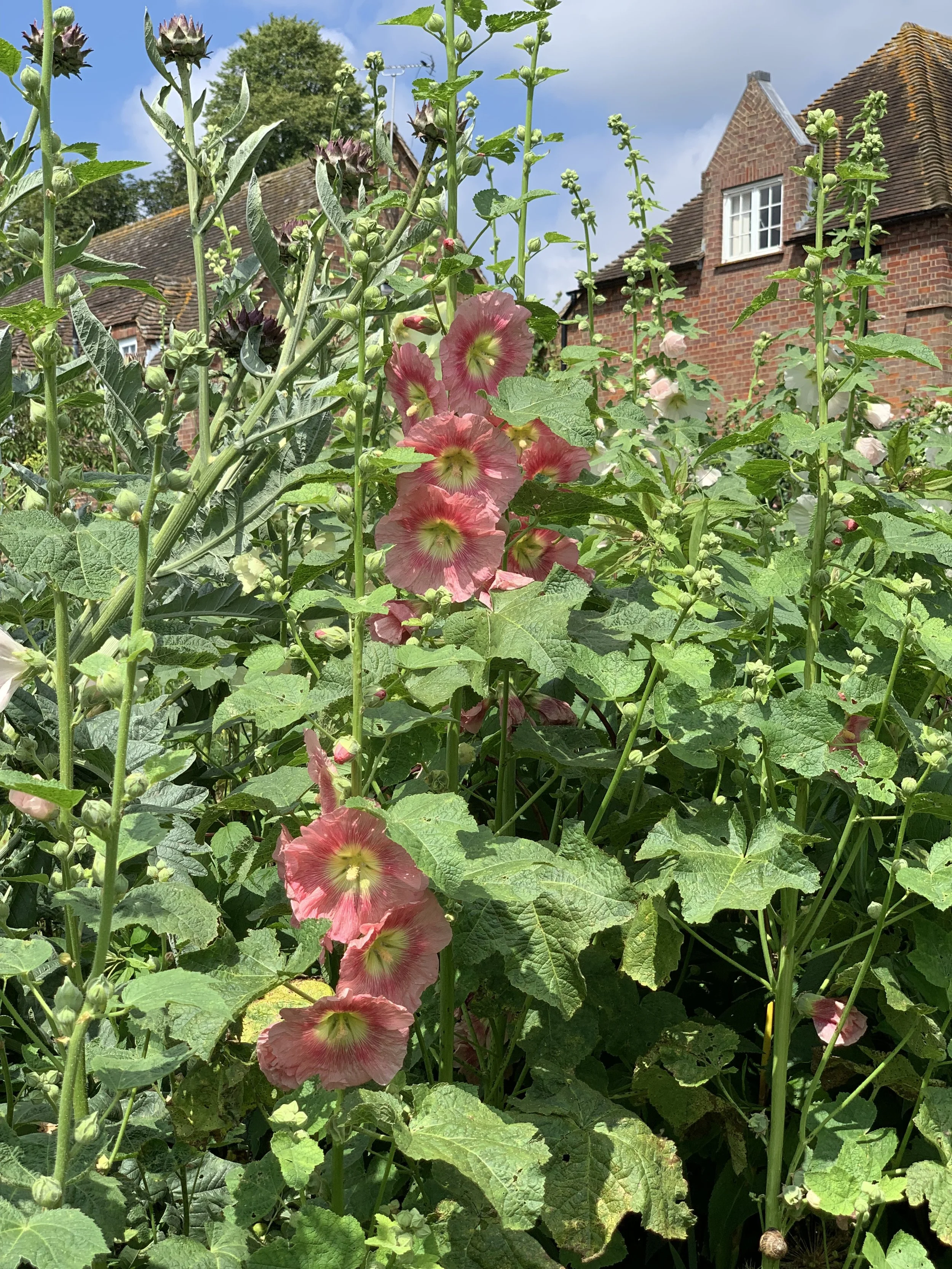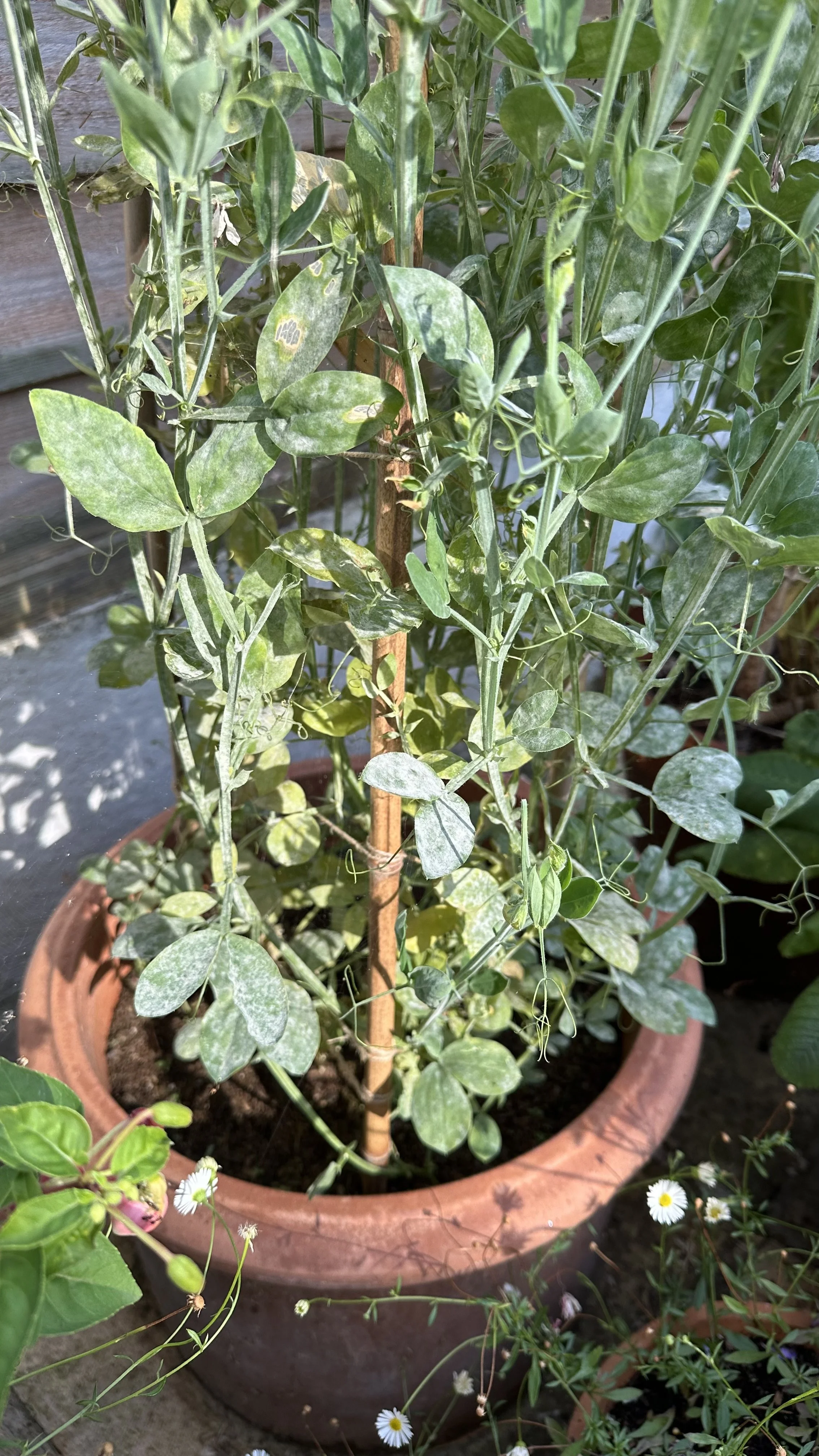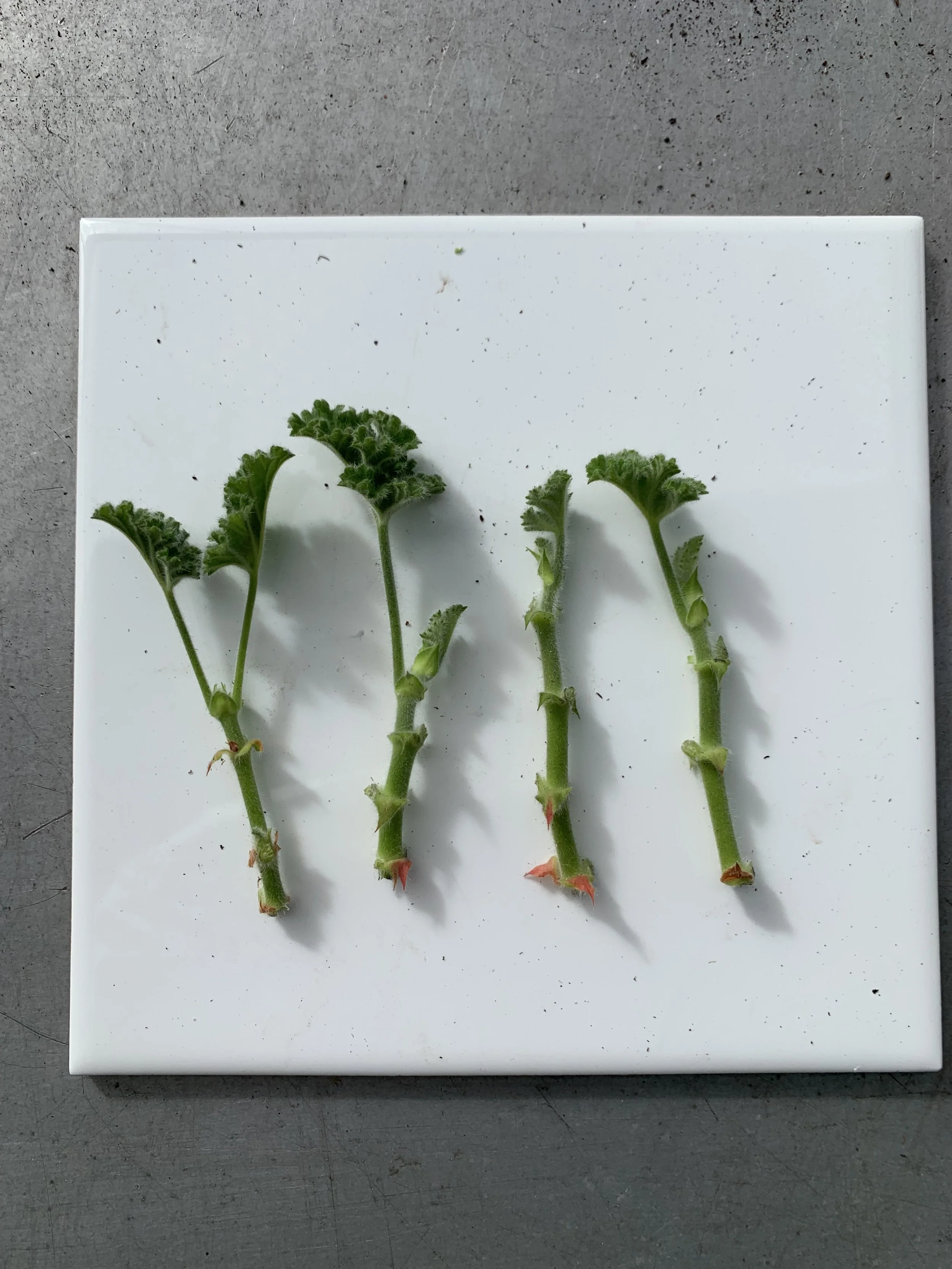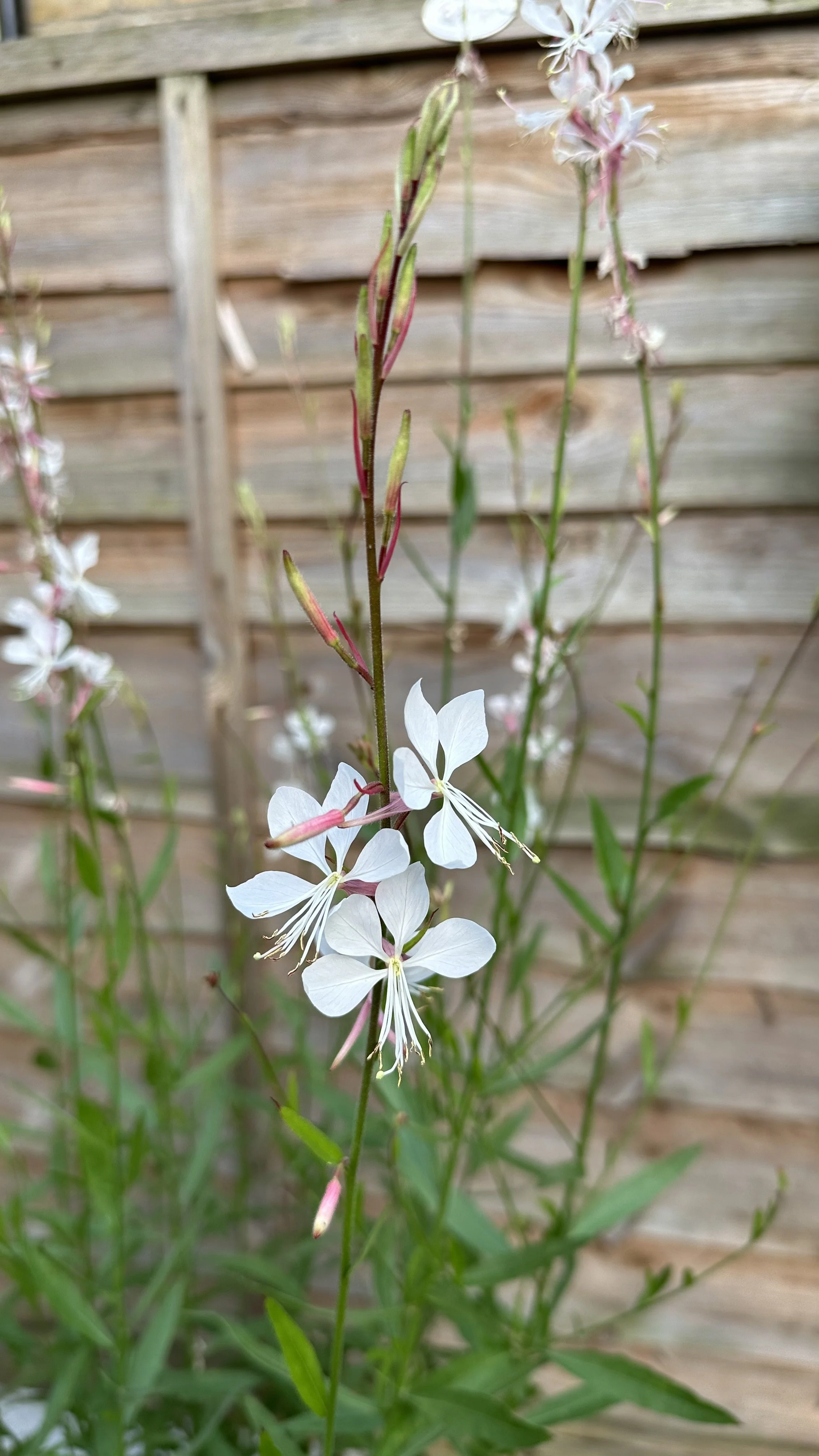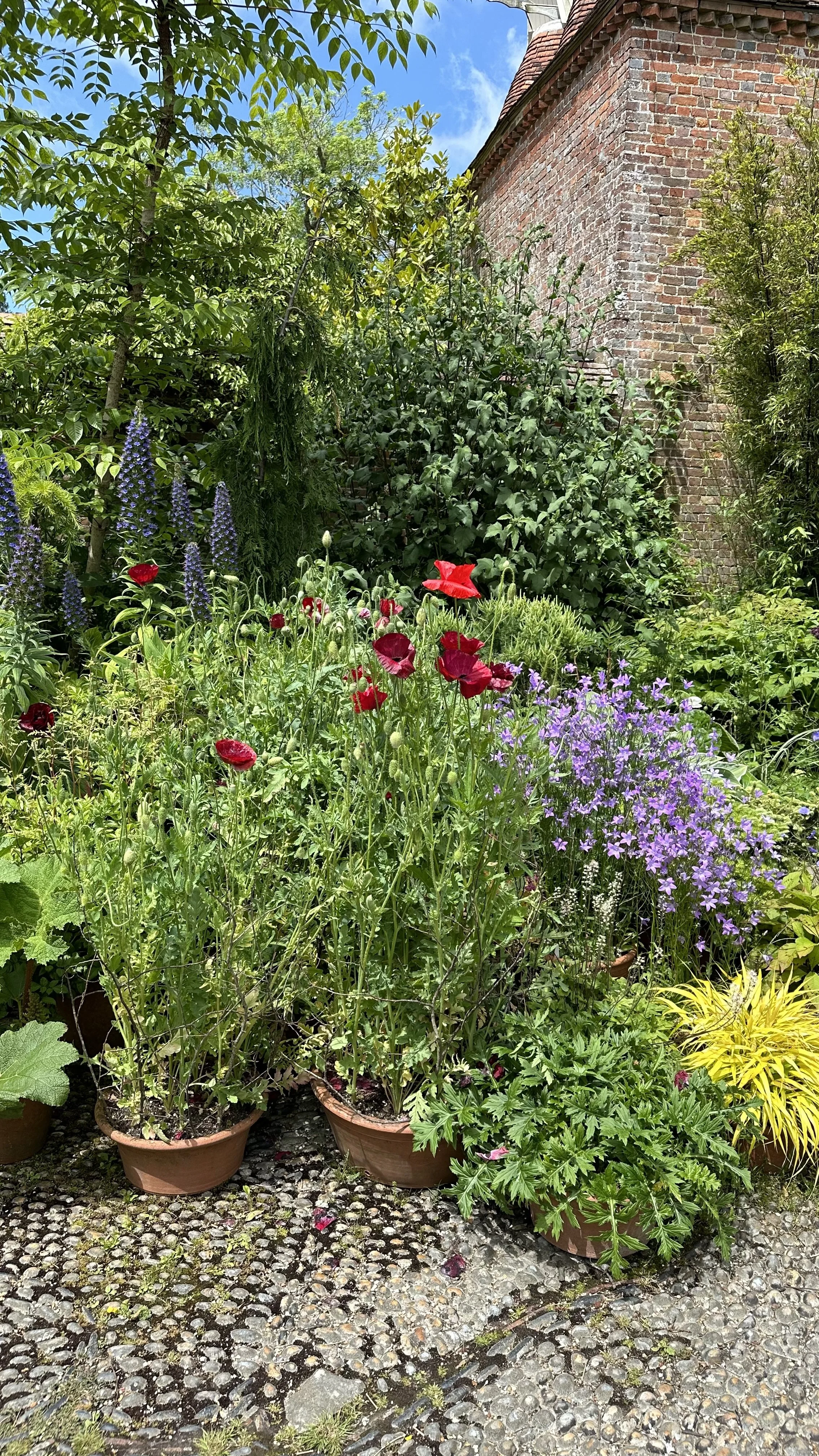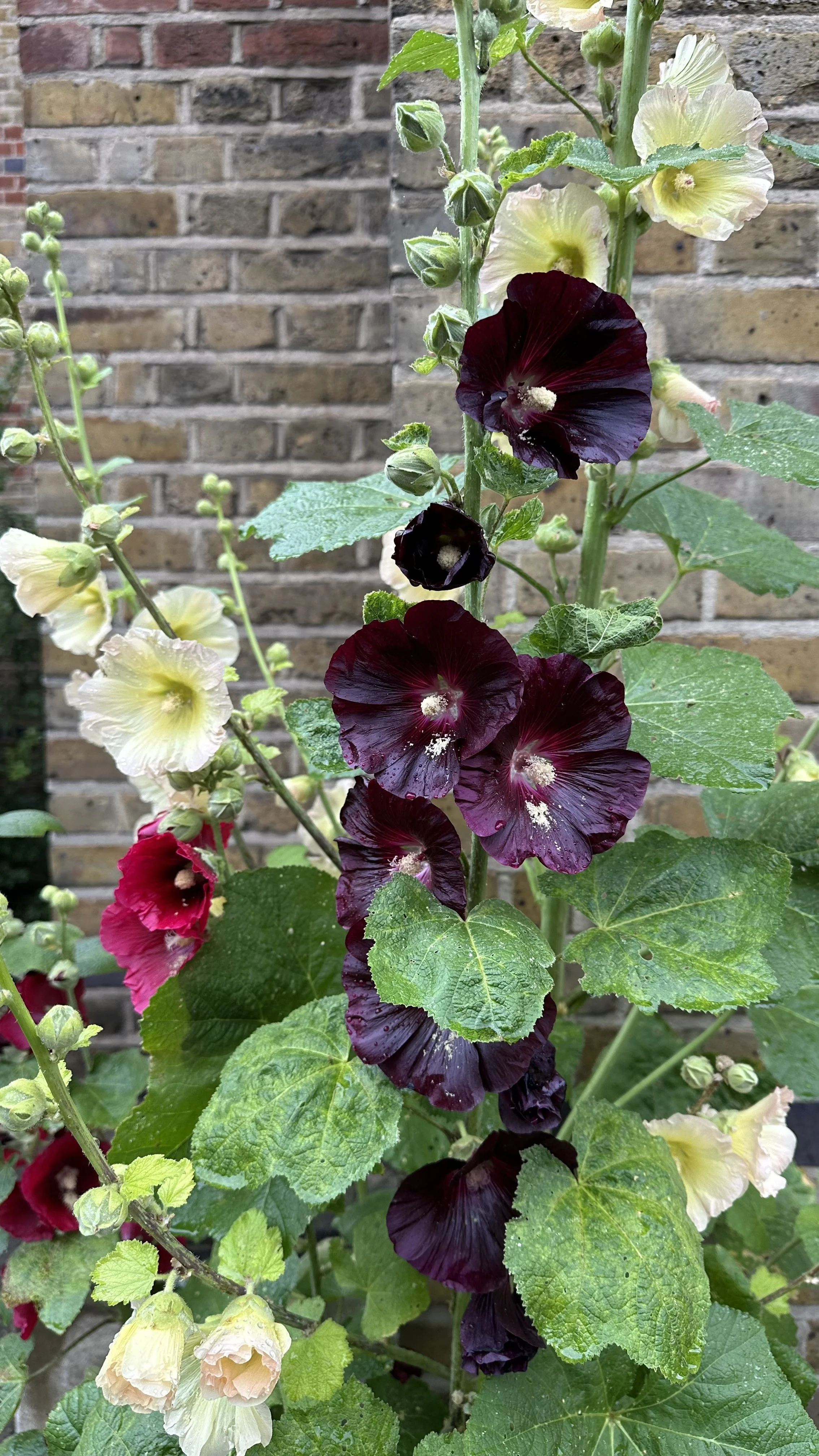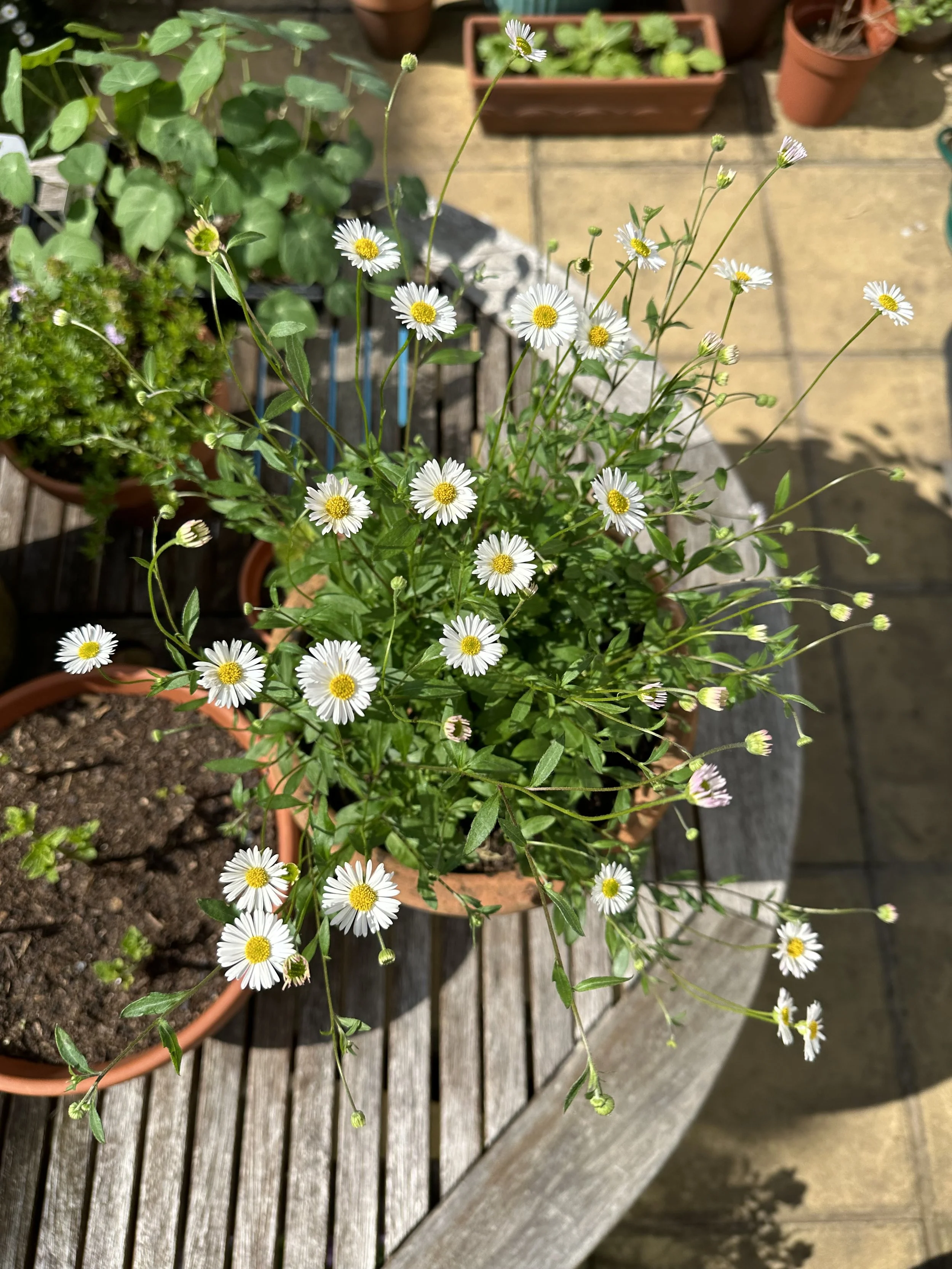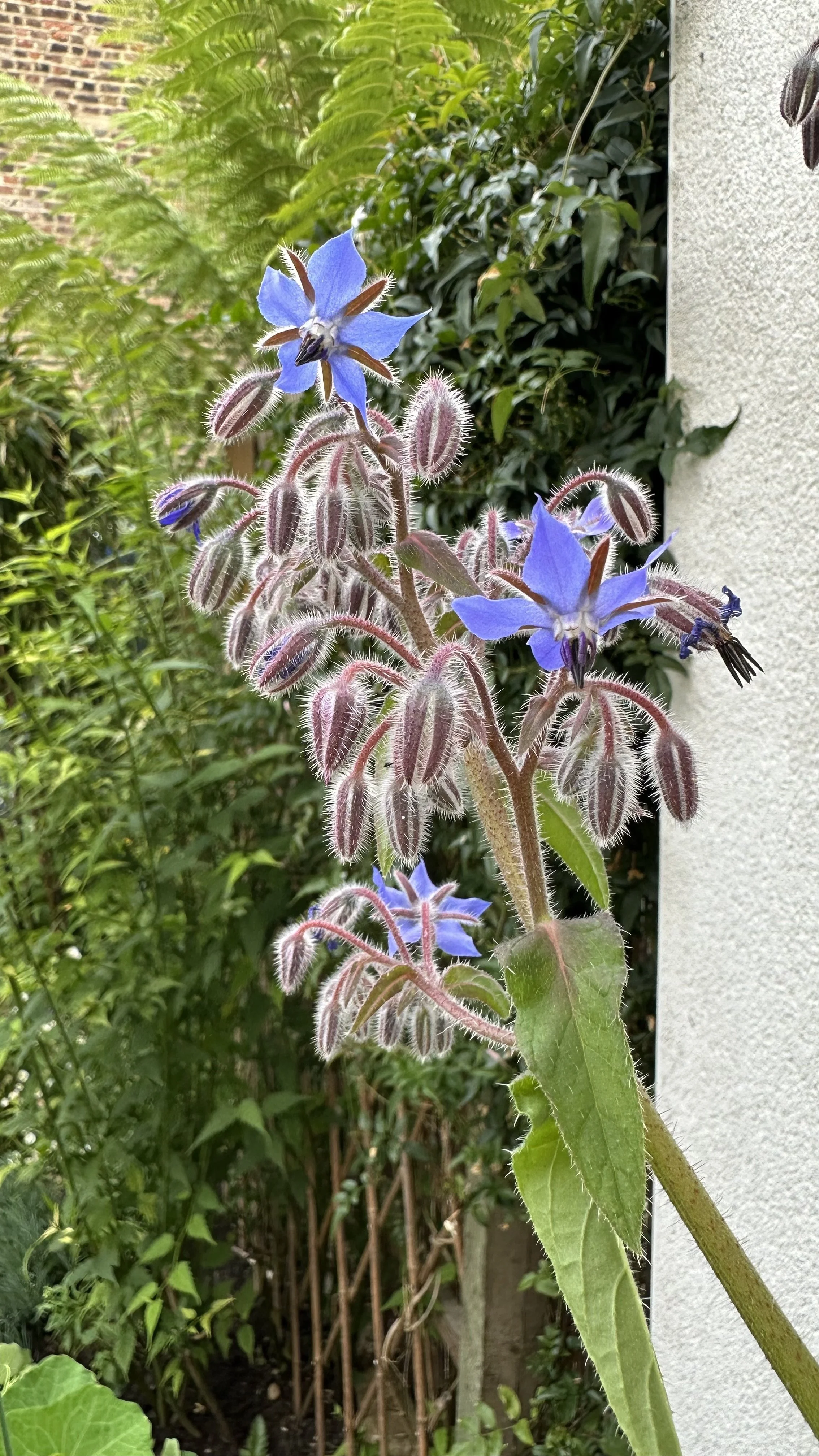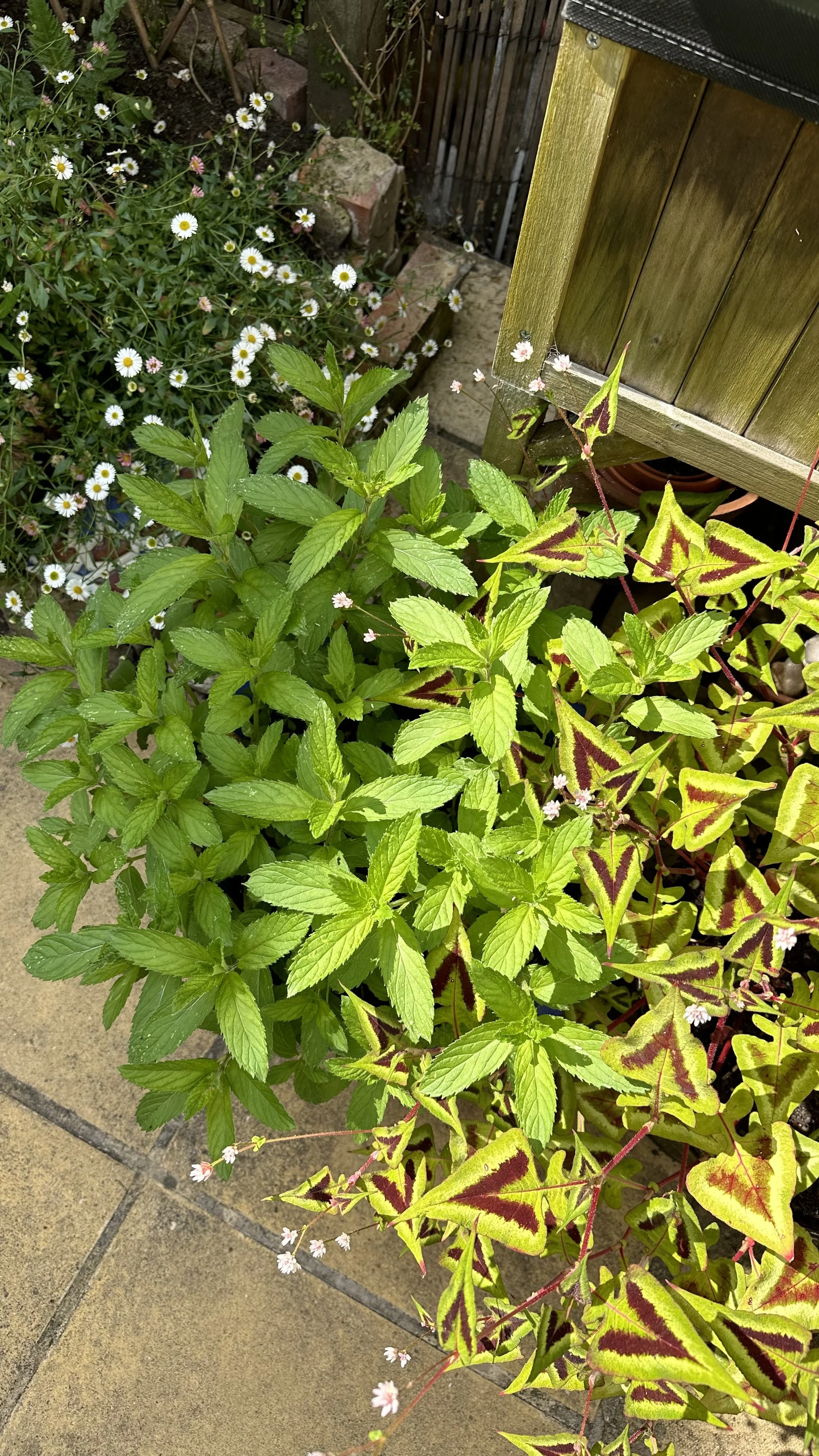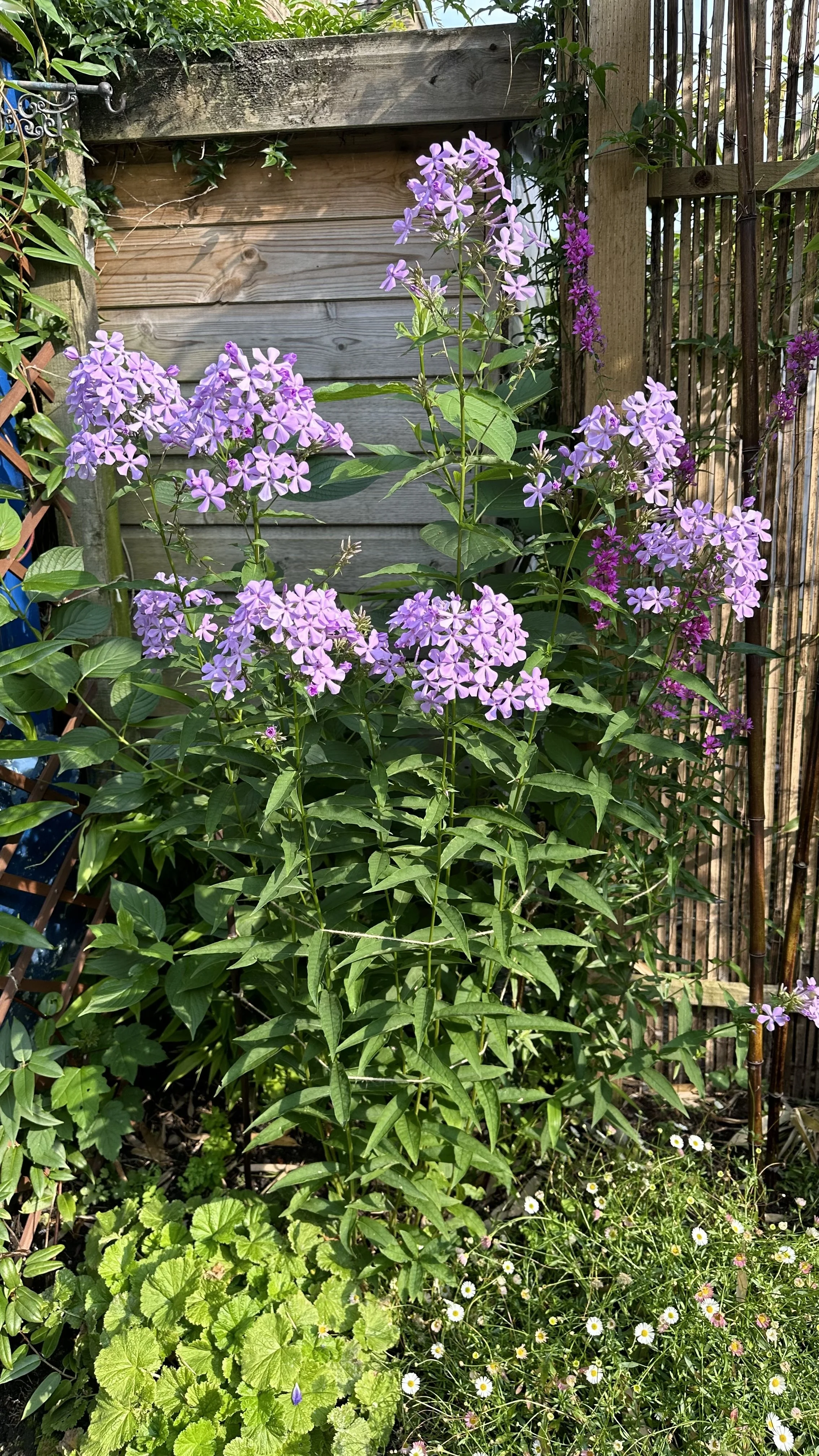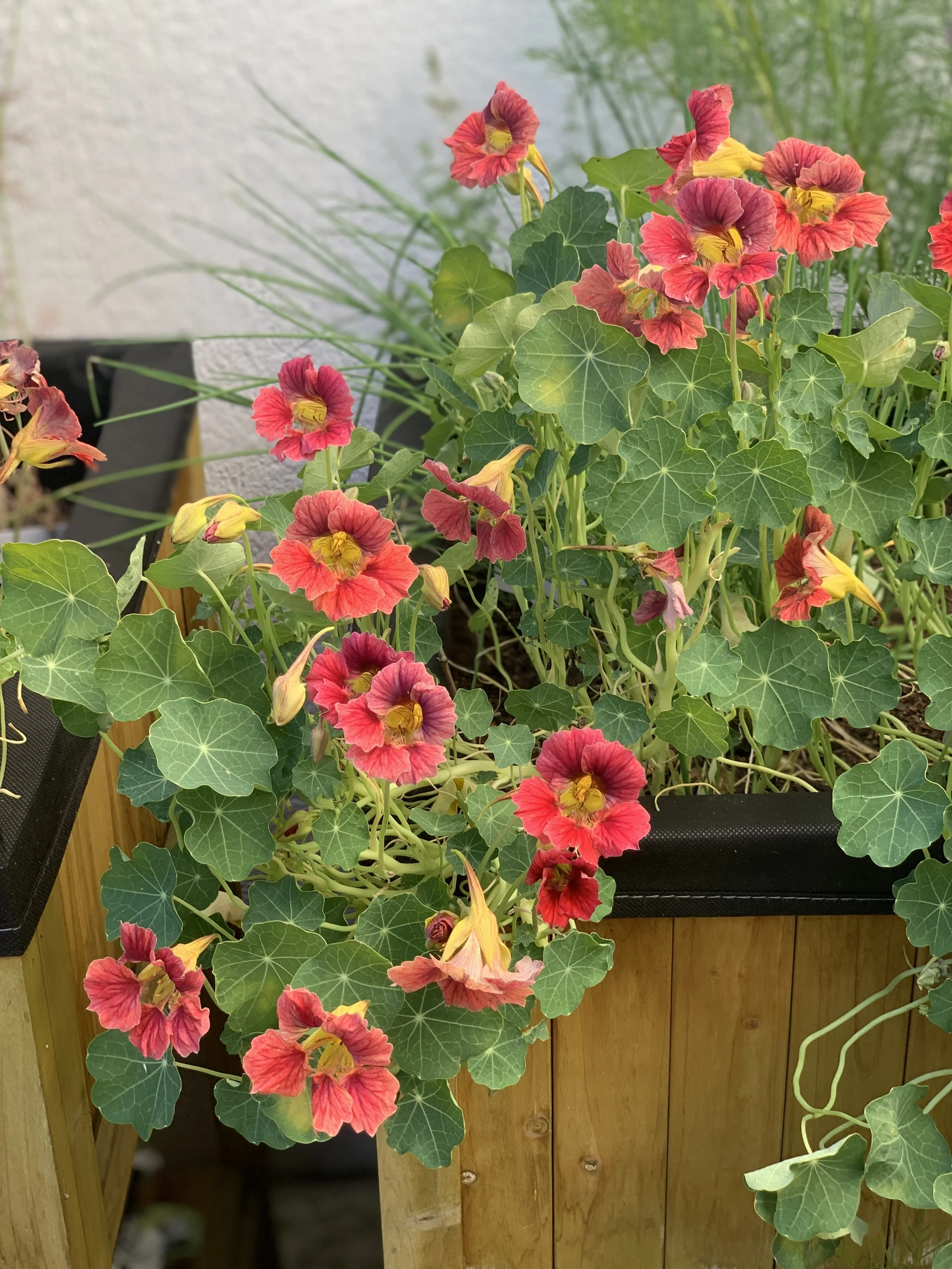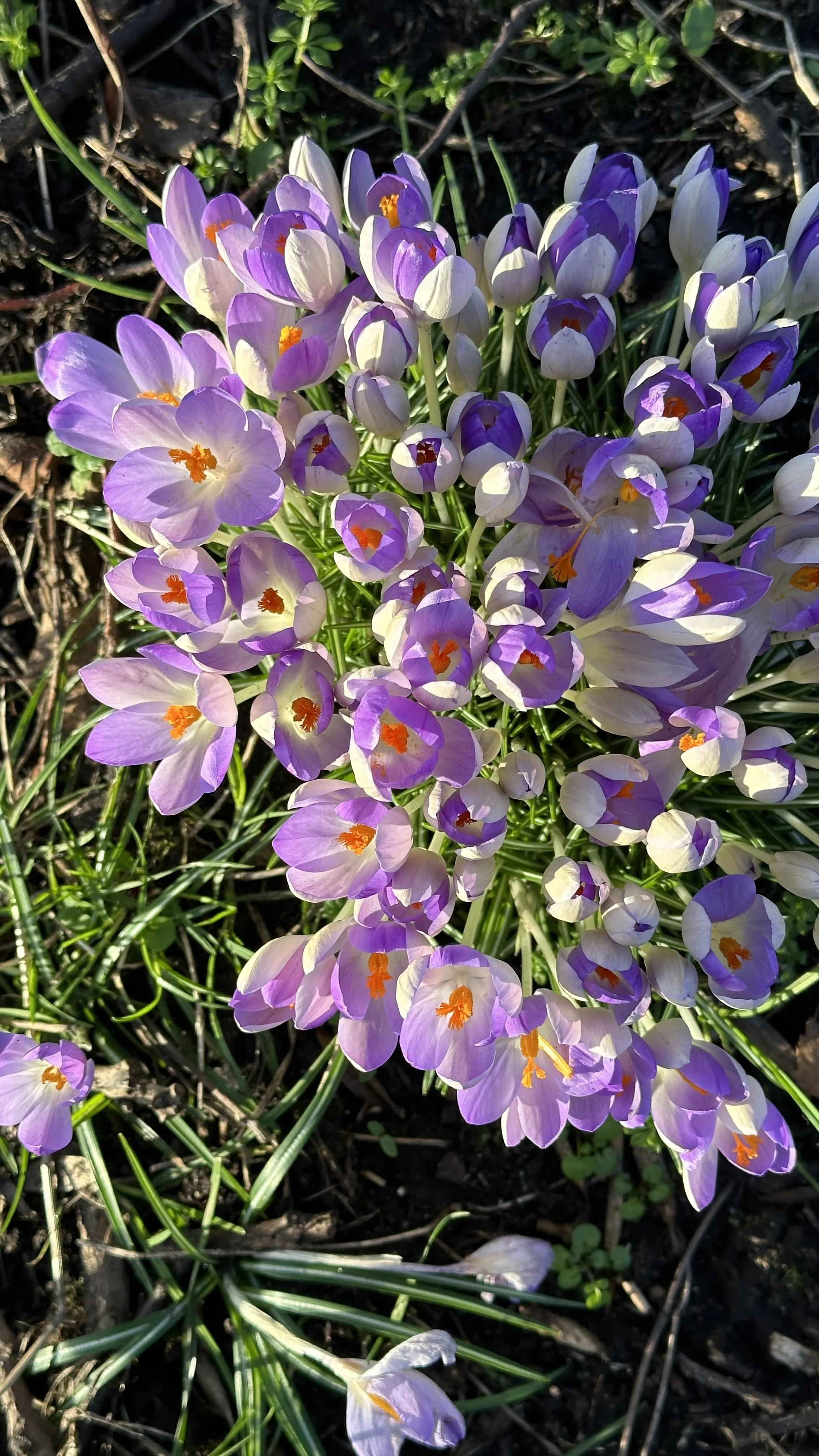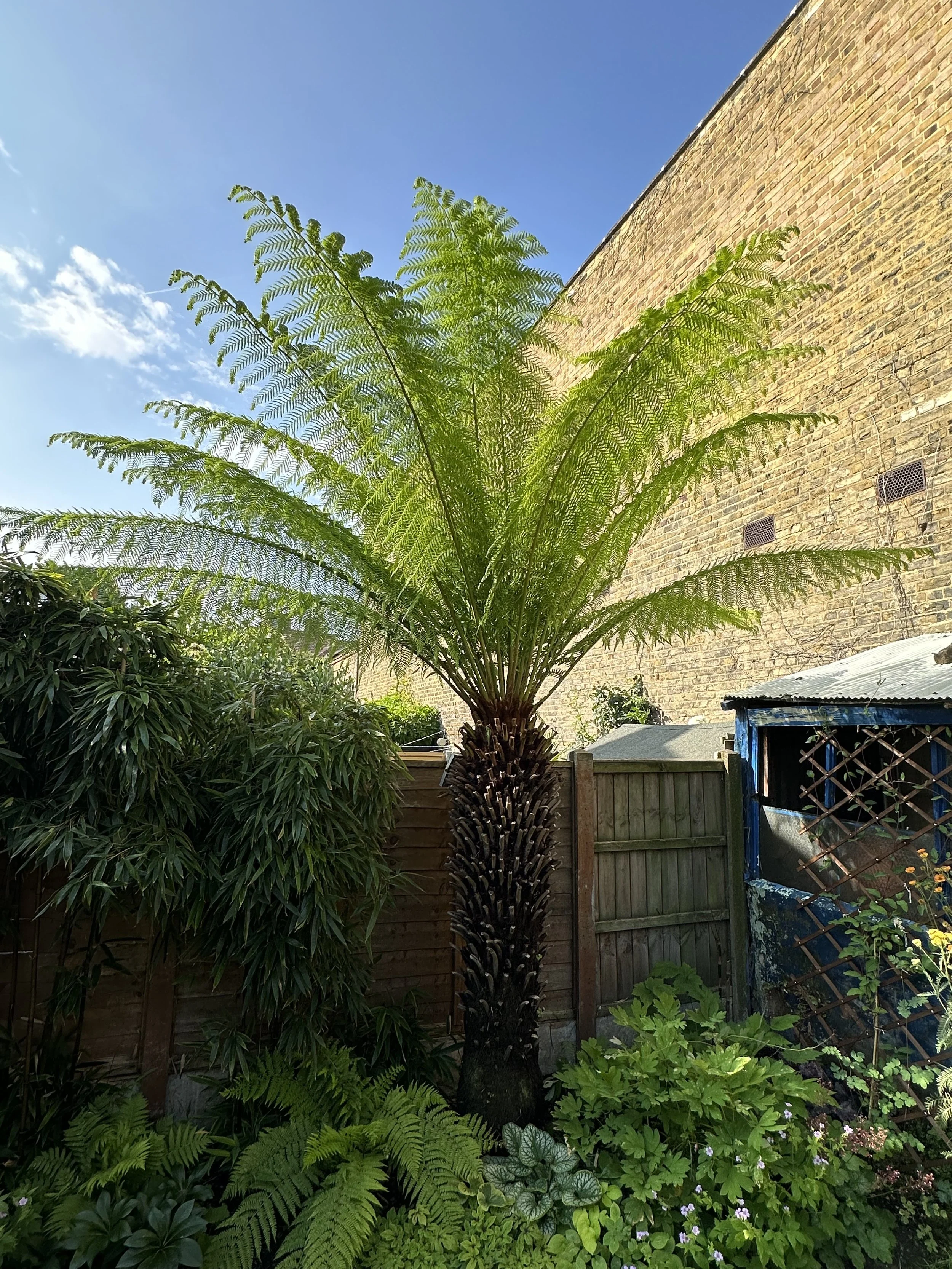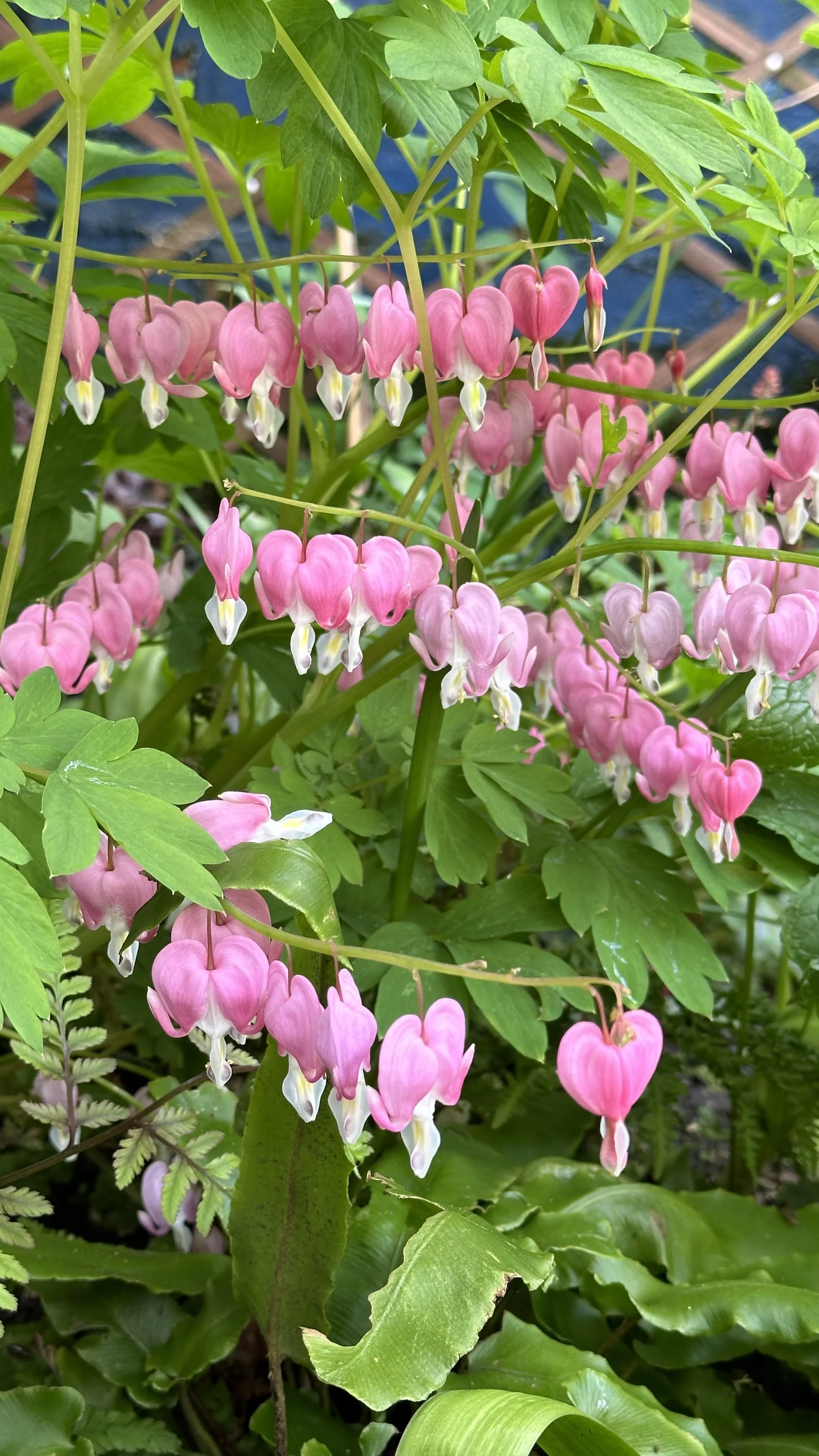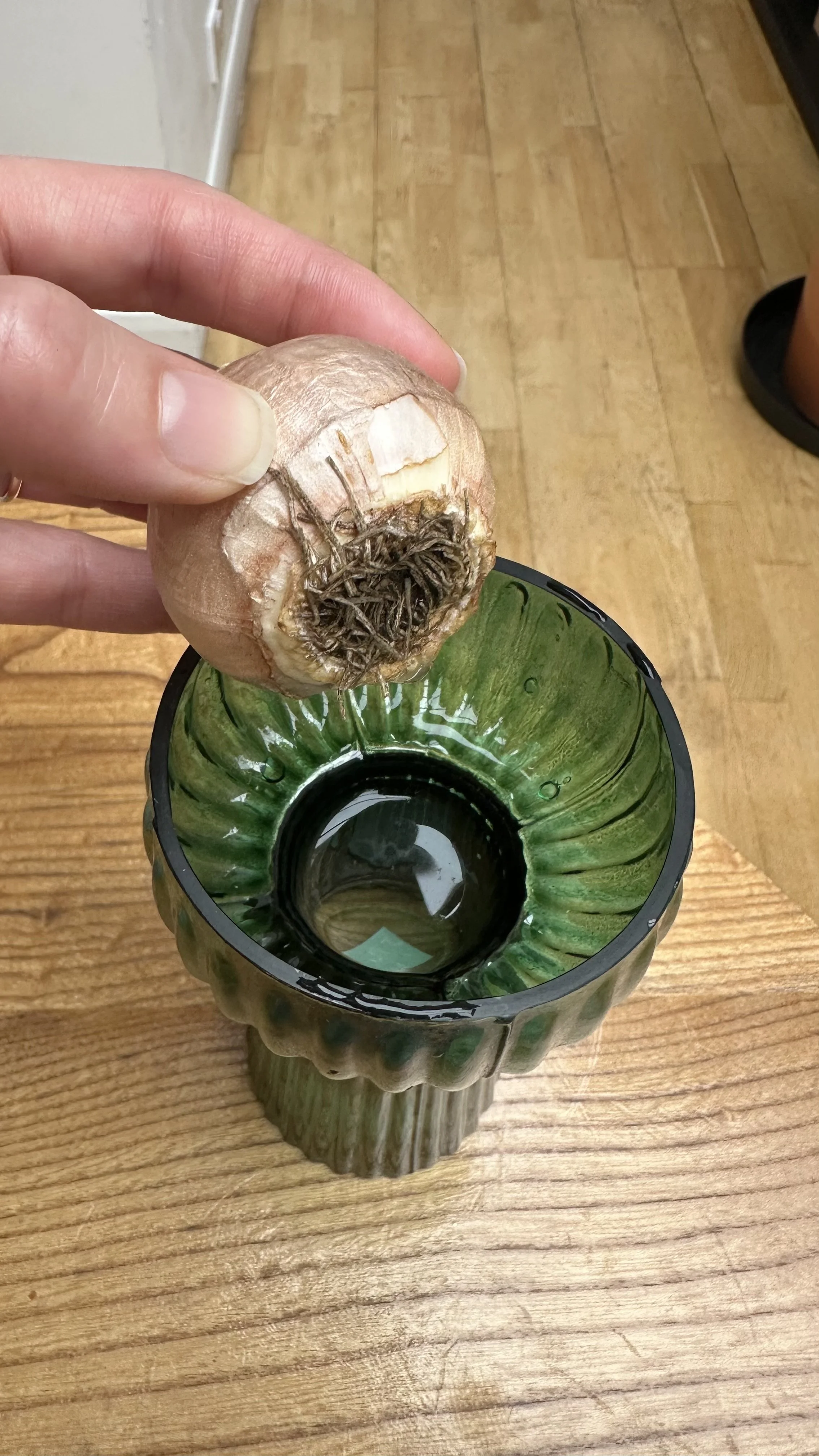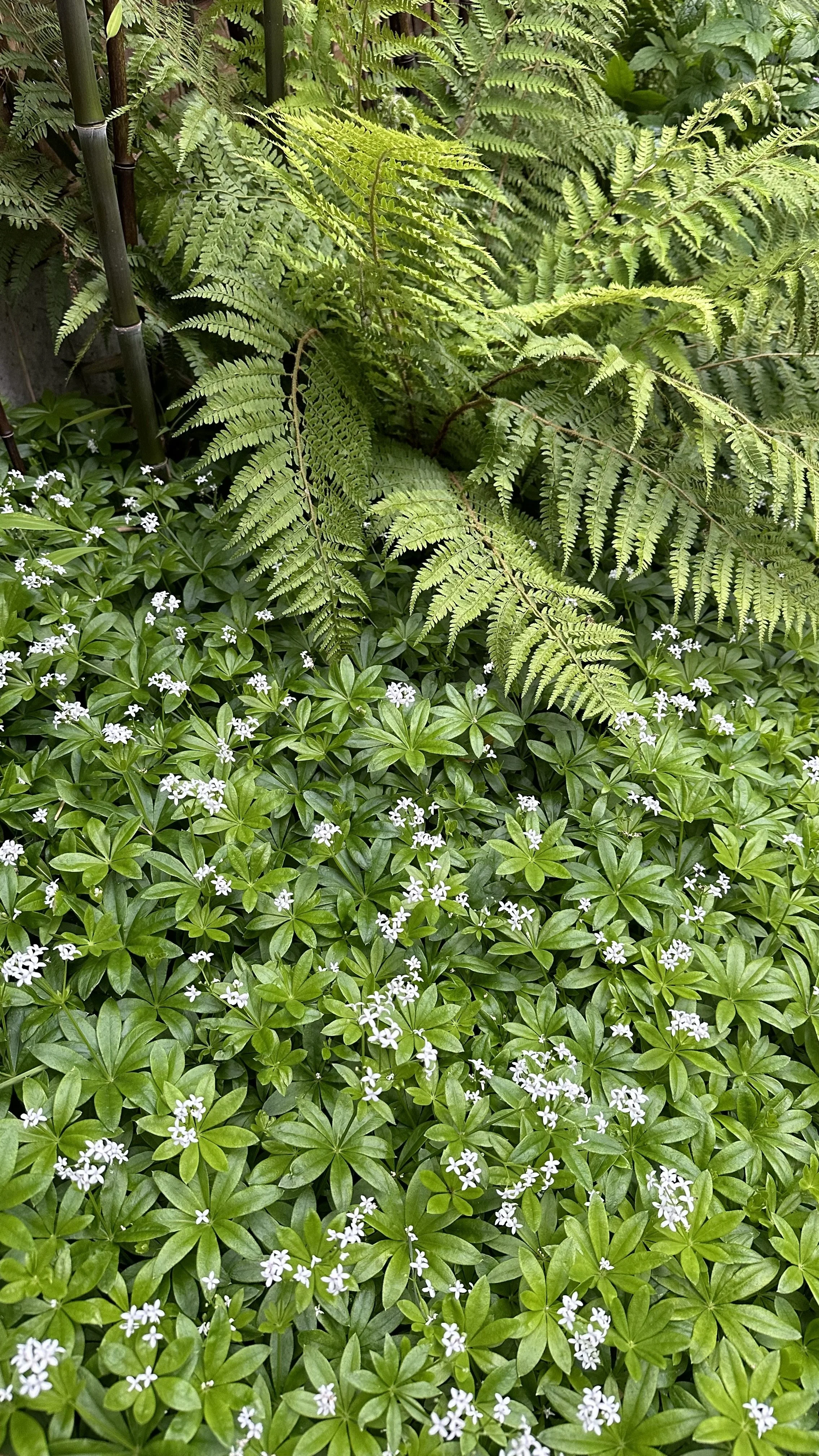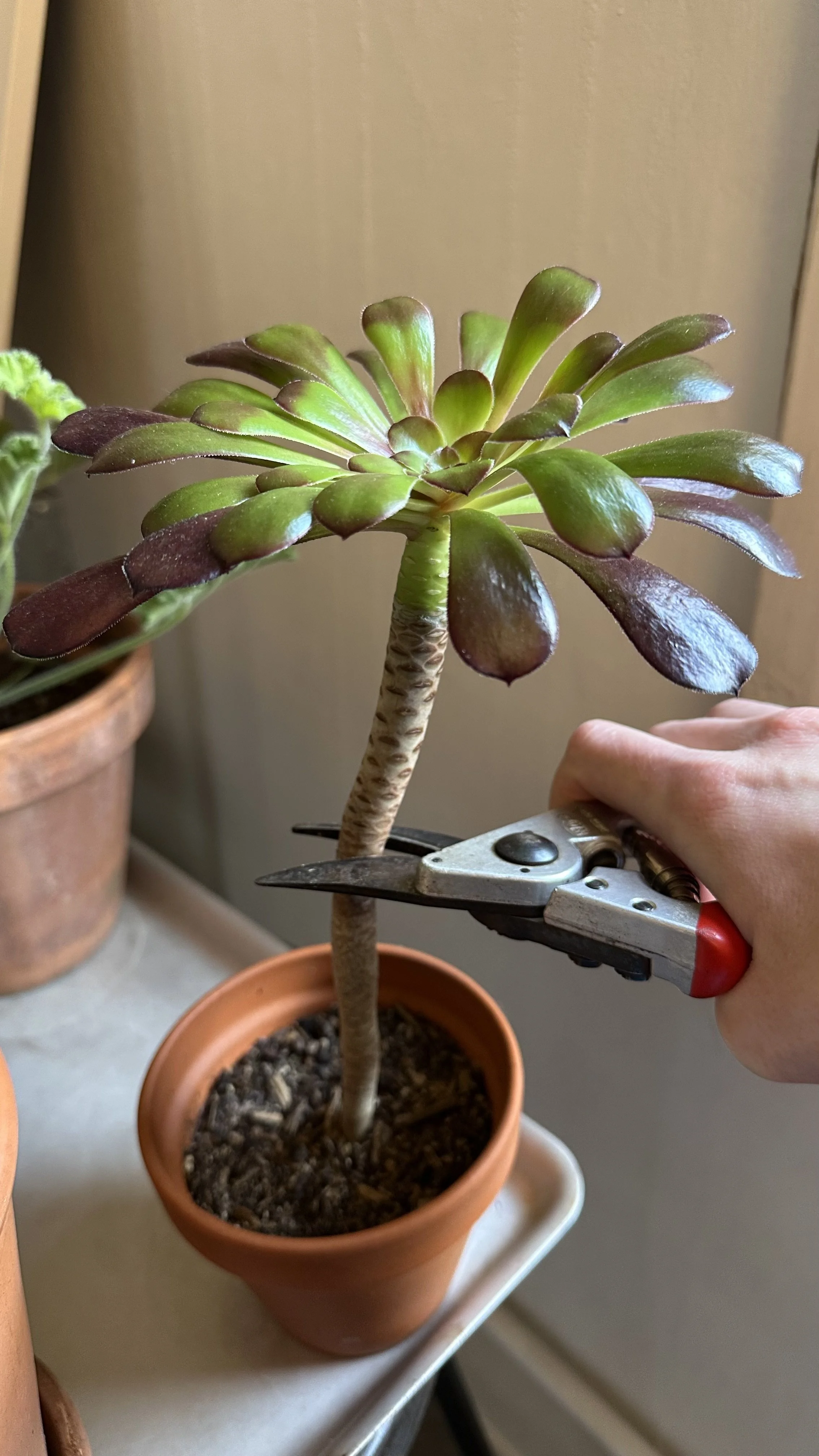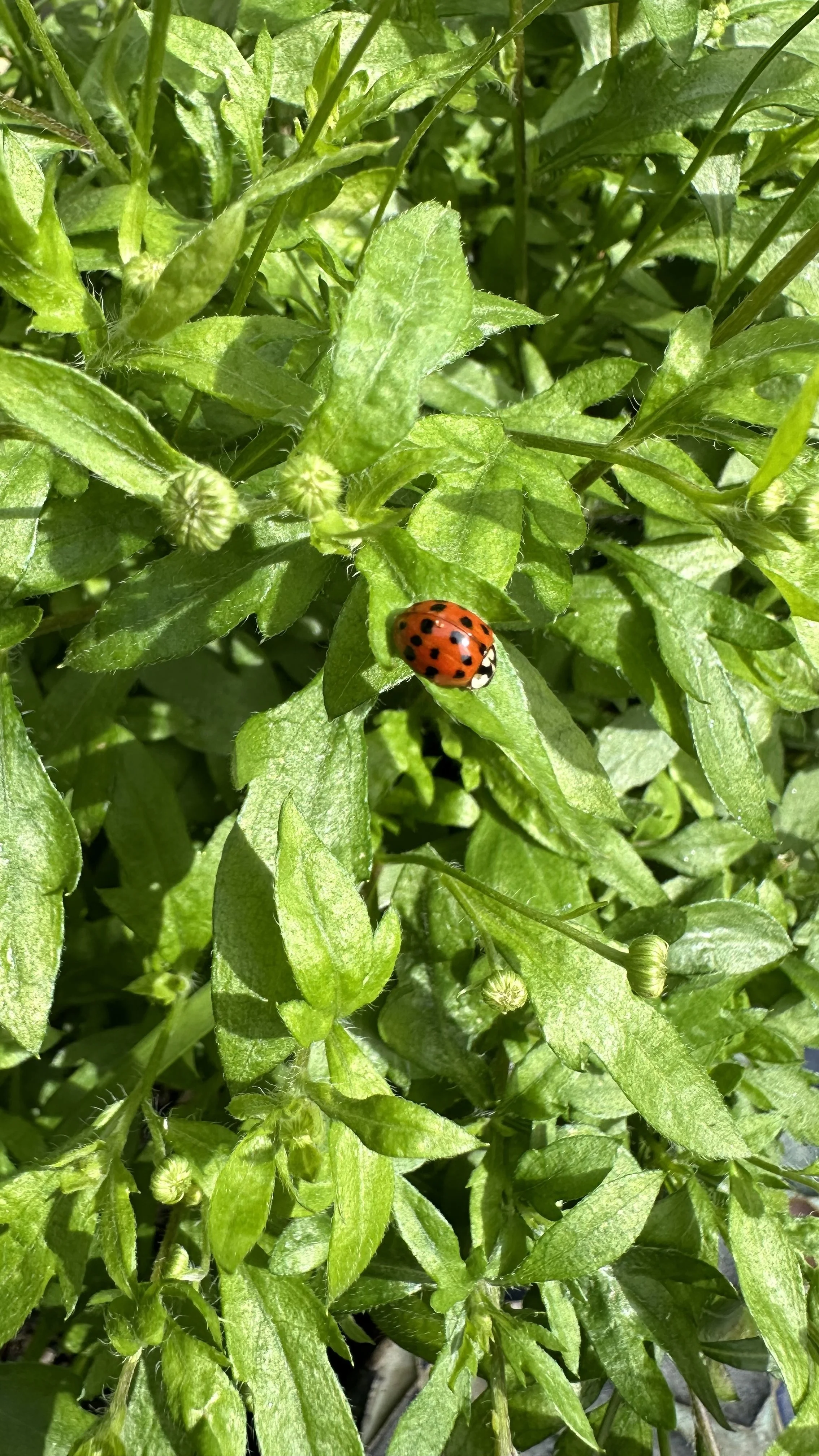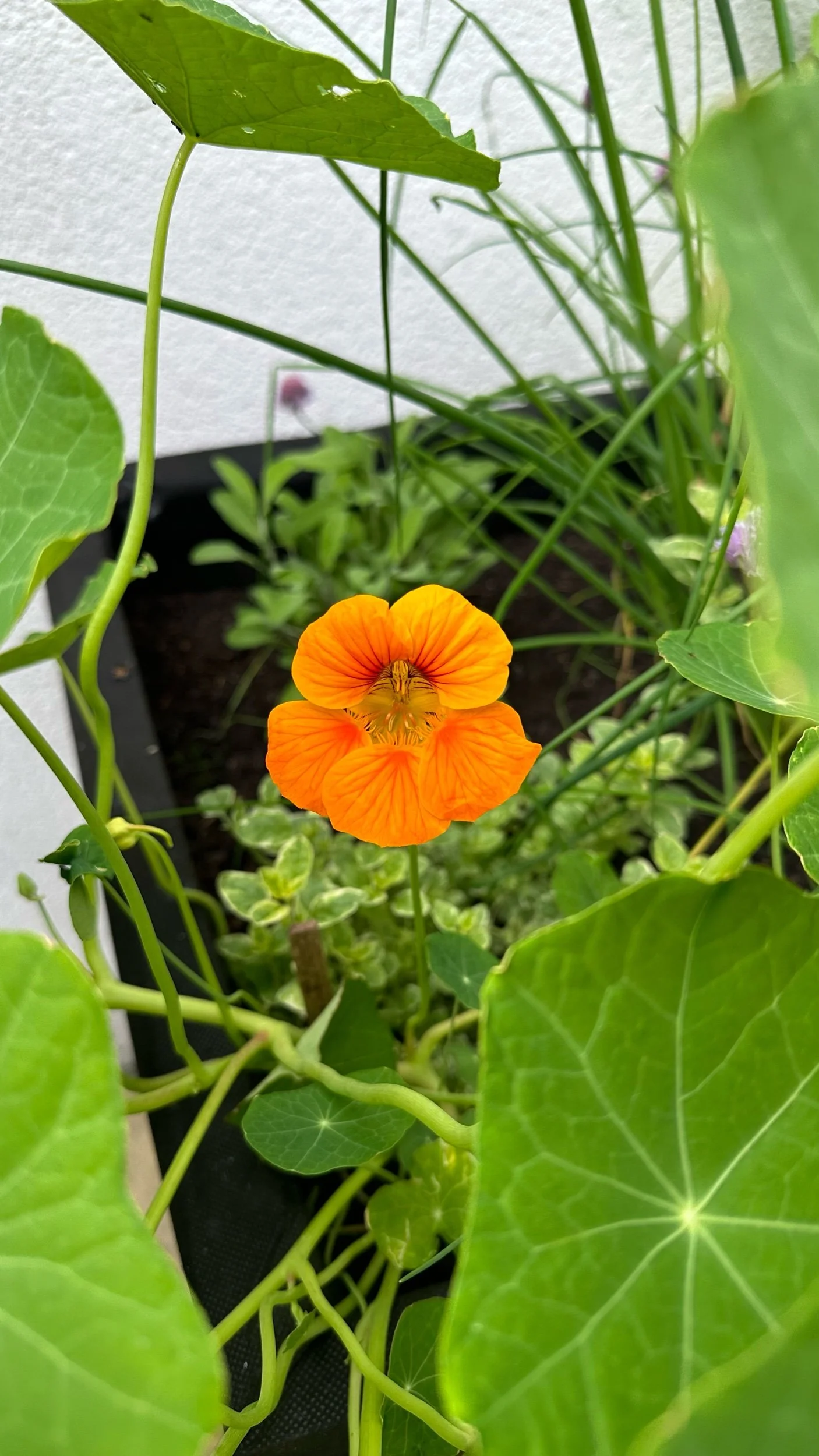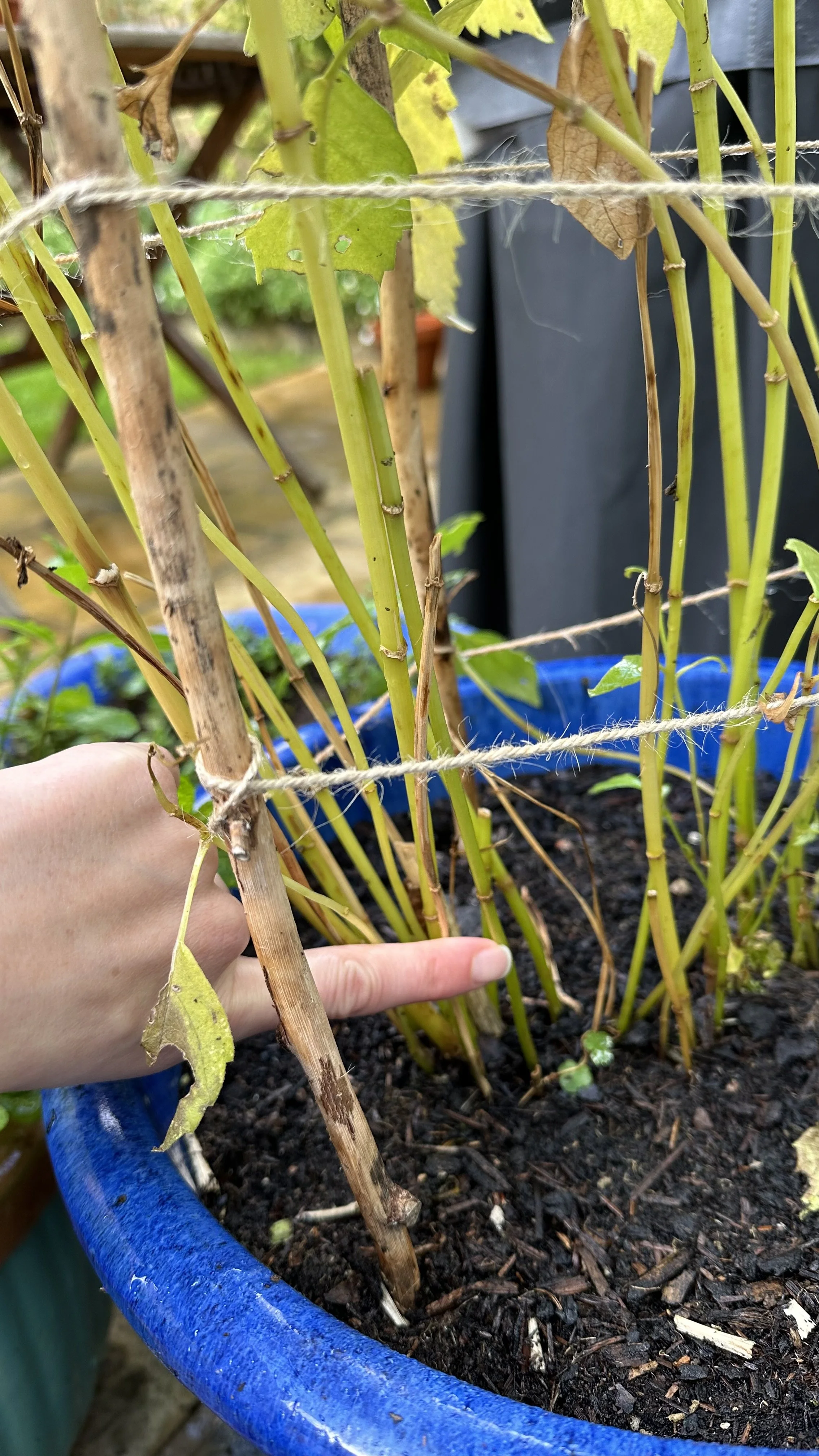Are Coffee Grounds Good for Tomato Plants?
This website is reader-supported - thank you! This post may contain affiliate links. As an Amazon Associate, I earn from qualifying purchases at no extra cost to you.
Are you considering sprinkling your tomato plants with coffee grounds?
This practice has gained popularity as a 'green' solution, but it's time to sift through the hype and uncover the truth.
In the world of gardening, where sustainable practices are increasingly cherished, reusing coffee grounds seems like a natural and eco-friendly choice.
But does this widely embraced practice truly benefit our tomato plants, or does it just percolate myths and misunderstandings?
Here we'll explore the common beliefs and misconceptions about using coffee grounds in tomato gardening.
From their alleged nutrient-rich composition to their supposed soil-enhancing qualities, we'll examine each claim with a gardener's eye for detail and a scientist's demand for evidence.
This journey is not just about debunking myths; it's about enriching our understanding of what it takes to nurture our gardens sustainably.
Let's dig deep into the soil of facts and find out what really helps our tomato plants thrive.
Join us as we delve into the world of coffee grounds and tomatoes, separating grounded truths from groundless tales.
Our exploration will take us through the nitty-gritty of soil chemistry, the intricate balance of nutrients, and the dynamic ecosystem of our gardens.
Want to learn more about growing tomatoes? Check out my guides:
Grow Tomatoes Anywhere with Grow Bags
The Art of Harvesting Tomatoes: When and How to Pick the Perfect Fruit
Debunking the Myths
Myth 1: Unlimited Nutrients
The Misconception:
A common gardening myth is that used coffee grounds are a rich, comprehensive source of nutrients for tomato plants, offering an abundance of nitrogen, potassium, and phosphorus – crucial for plant growth.
The Reality:
While it's true that coffee grounds contain these nutrients, their form and availability to plants are not as straightforward as often believed.
Here's a more nuanced look:
Nitrogen Content:
Coffee grounds are rich in nitrogen, but this nitrogen is not immediately available to plants.
It exists in a form that requires microbial action in the soil to break it down into a usable form.
This process can take time, and during the initial stages of decomposition, the microorganisms might actually consume more nitrogen from the soil, temporarily reducing its availability to the plants.
Slow Release of Nutrients:
The breakdown process of coffee grounds is slow.
This means that even though they contain nutrients like phosphorus and potassium, these are released gradually over time.
For plants that require immediate nourishment, like fast-growing tomatoes, this slow release might not be sufficient to meet their nutritional needs, especially in the critical phases of flowering and fruiting.
Caffeine Residues:
Coffee grounds contain traces of caffeine, which can inhibit the growth of certain plants.
While tomatoes are not particularly sensitive to caffeine, the presence of it in the soil can affect the surrounding soil ecosystem, potentially impacting other plants and microorganisms.
Organic Material Balance:
Coffee grounds are a form of organic matter, but using them as the sole or primary amendment can lead to an imbalance in the soil.
A healthy soil ecosystem requires a diverse mix of organic materials to provide a balanced nutrient profile and support a range of beneficial microbial activities.
The Bottom Line:
The nutrient value of coffee grounds for tomato plants is more limited and complex than often thought.
They should not be relied upon as a primary source of nutrients but can be used as a part of a more comprehensive soil management strategy, preferably after being composted.
Learn more about growing tomatoes with my guides:
When to Start Tomato Seeds Indoors
Myth 2: Ideal Soil pH
The Misconception:
A prevalent belief among many gardeners is that coffee grounds are highly acidic, and when used in the garden, they can create the perfect acidic environment that tomato plants love.
The Reality:
This belief is based on a partial truth and requires a deeper dive to understand its implications fully:
pH Level of Used Coffee Grounds:
Contrary to popular belief, used coffee grounds are generally not highly acidic.
The brewing process removes most of the acidity, leaving the grounds with a pH that is often closer to neutral.
The actual pH can vary depending on the type of coffee and the brewing method, but it typically ranges from slightly acidic to neutral.
Soil pH and Nutrient Availability:
Tomato plants thrive in slightly acidic to neutral soil, ideally with a pH between 6.0 and 7.0.
While slightly acidic conditions are beneficial, overly acidic or fluctuating pH levels can negatively impact nutrient availability.
Essential nutrients can become either less available or excessively available, leading to nutrient imbalances.
Impact of Adding Coffee Grounds to Soil:
If used coffee grounds are added to the soil in large quantities, especially over time, there is a potential (though less common) risk of affecting the soil's pH.
However, this effect is usually not as significant as some might believe.
The greater concern is the unpredictability and variability in how coffee grounds interact with different soil types and existing pH levels.
Soil Testing and Management:
It's crucial to test your soil's pH regularly.
Blindly adding coffee grounds without understanding the current soil conditions can lead to unintended consequences.
Managing soil pH should be a deliberate process, using appropriate amendments based on the specific needs of the soil and plants.
The Bottom Line:
The idea that coffee grounds consistently create an ideal acidic environment for tomato plants is oversimplified and can be misleading.
While they may not drastically alter the soil pH, their use should be tailored to the specific conditions of your garden soil, always backed by regular pH testing and careful observation of plant health.
For more garden tips, check out my guides:
Top Slug Resistant Plants to Transform Your Garden
Myth 3: Pest Deterrent
The Misconception:
A widely circulated gardening myth is that coffee grounds are an effective natural deterrent against common garden pests, especially when used around tomato plants.
The Reality:
The belief in coffee grounds as a pest deterrent is more rooted in anecdotal evidence than scientific fact.
Let's unpack this:
Limited Evidence on Pest Repellence:
Research on the pest-repellent properties of coffee grounds is limited and inconclusive.
While some gardeners report reduced slug and snail activity with the use of coffee grounds, scientific studies have not consistently backed these claims.
The caffeine in coffee grounds is believed to have some repellent properties, but the concentration in used grounds is typically too low to be effective.
Impact on Beneficial Insects:
It's important to consider the effect on beneficial insects as well.
While the goal might be to deter harmful pests, indiscriminate use of any repellent can also drive away insects that are advantageous for your garden, such as pollinators and natural pest predators.
Attracting Unwanted Pests:
Conversely, coffee grounds can sometimes attract unwanted pests. For instance, they may draw certain types of flies or small rodents. This could inadvertently create a new pest problem in your garden.
Decomposition and Mold:
As coffee grounds decompose, they can become moldy, especially if applied in thick layers.
This mold can attract pests that feed on decaying organic matter, further complicating pest management in the garden.
Alternative Pest Control Measures:
For effective pest control, it is advisable to use targeted, proven methods.
These can include physical barriers (like slug fences), biological controls (introducing natural predators), or, if necessary, environmentally friendly pesticides.
Integrating multiple pest control strategies, known as Integrated Pest Management (IPM), can be particularly effective.
The Bottom Line:
The use of coffee grounds as a pest deterrent in the garden is largely based on anecdotal evidence and lacks robust scientific support.
Approach this practice with caution and consider more reliable and targeted methods for pest control.
Learn more about tomato growing with my guides:
Why is My Tomato Plant Not Flowering?
Myth 4: Mold Resistance
The Misconception:
There's a belief among some gardeners that using coffee grounds in soil can help prevent mold and fungal diseases in tomato plants, based on the assumption that coffee grounds possess antimicrobial properties.
The Reality:
The relationship between coffee grounds and mold in the garden is quite the opposite of this belief:
Mold Growth on Coffee Grounds:
Coffee grounds can actually promote mold growth when used in the garden.
This is particularly true when they are wet and clumped together, creating an ideal environment for mold and fungi.
These molds are not the beneficial kind that contribute to soil health; rather, they can be harmful to both the soil ecosystem and the plants.
Pathogenic Fungi:
Some types of fungi that thrive in decomposing coffee grounds can be pathogenic to plants.
If these fungi proliferate, they can potentially infect tomato plants, leading to diseases that can hinder plant growth and fruit production.
Coffee Grounds and Soil Microbiome:
While coffee grounds can add organic matter to the soil, their propensity to mold can disrupt the delicate balance of the soil microbiome.
A healthy soil microbiome is crucial for nutrient uptake, root health, and overall plant vigor.
Introducing mold-prone materials like coffee grounds can upset this balance.
Proper Composting is Key:
If gardeners still wish to use coffee grounds, it is crucial to compost them first.
Composting coffee grounds with other organic materials helps to break them down more thoroughly, reducing the likelihood of mold growth.
This compost can then be used safely in the garden, providing a more balanced nutrient addition without the high risk of mold.
The Bottom Line:
The belief that coffee grounds prevent mold and fungal diseases in tomato plants is a misconception.
In fact, their use can increase the risk of mold and pathogenic fungi in the soil.
Composting coffee grounds before applying them to the garden is a safer and more effective approach.
For more tips, check out my guide:
Potential Drawbacks
Over-Acidifying the Soil
While used coffee grounds are generally neutral in pH, fresh, unbrewed grounds are acidic.
If you mistakenly use fresh grounds, or even if the used grounds are not as neutral as believed, they can contribute to soil acidification over time.
This change in pH can make the soil environment unsuitable for tomato plants, as they prefer a slightly acidic to neutral pH.
An acidic environment can affect the plant's ability to absorb nutrients effectively, leading to poor growth and yield.
Nitrogen Drawdown
When coffee grounds are added directly to the soil, they begin to decompose.
During this process, soil microorganisms consume nitrogen to break down the carbon-rich grounds.
This phenomenon, known as 'nitrogen drawdown,' temporarily reduces the amount of nitrogen available to the tomato plants.
In the short term, this can lead to nitrogen deficiency, characterized by stunted growth and yellowing leaves.
While the nitrogen will eventually be released back into the soil, this temporary imbalance can adversely affect the health and productivity of the tomato plants.
Mold Growth
Used coffee grounds can easily become a breeding ground for mold and fungus, especially if they remain damp or are applied in thick layers.
These molds can compete with beneficial soil microorganisms and potentially harm plant roots.
Certain types of mold that thrive in coffee grounds can also spread to the plant itself, leading to diseases.
This risk is particularly high in humid conditions or in gardens with poor air circulation.
To mitigate this risk, it's advisable to compost coffee grounds before using them in the garden, as the composting process helps to break down the grounds and reduce the likelihood of mold growth.
Potential Attraction of Pests
While some believe coffee grounds repel pests, in some cases, they can actually attract them.
For example, coffee grounds can attract rodents. Additionally, if the grounds are moldy, they may attract pests that feed on decaying organic matter.
This unintended attraction of pests can lead to more problems in the garden, affecting the health of tomato plants.
Inconsistency in Results
The effectiveness of coffee grounds can vary greatly depending on numerous factors such as the type of coffee, the brewing method, and the existing soil conditions.
This inconsistency makes it difficult to predict how coffee grounds will affect the soil and tomato plants in any given garden.
Such unpredictability can be problematic for gardeners who are looking for consistent and reliable ways to boost their tomato plants' health and productivity.
For more ideas, check out my guides:
Safer Alternatives
Balanced Composting
Instead of applying coffee grounds directly to the soil, incorporating them into a balanced composting strategy is more beneficial.
In a compost pile, coffee grounds decompose and break down, mingling with other organic matter like vegetable scraps, leaves, and grass clippings.
This process creates a nutrient-rich compost that is much safer and more beneficial for tomato plants.
The composting process neutralizes any potential acidity in the coffee grounds and ensures that the nitrogen they contain is released slowly and in a plant-friendly form.
This method minimizes the risks of nitrogen drawdown and soil acidification, making compost a safe and effective way to enrich the soil for tomato plants.
To learn more about compost, check out my guide A Simple Recipe for Rich Compost Tea.
Commercial Fertilizers
For gardeners seeking a more predictable and balanced approach, commercial fertilizers specifically formulated for tomato plants are an excellent option.
These fertilizers are designed to provide the optimal balance of nutrients, such as nitrogen, phosphorus, and potassium, in ratios that are ideal for tomato growth.
They often include trace elements like calcium, which is essential for preventing blossom end rot, a common issue with tomato plants.
Using commercial fertilizers reduces the guesswork and variability associated with coffee grounds, ensuring that the plants receive the right nutrients at the right time.
Here is the fertilizer I recommend for tomatoes:
Organic Mulches
Another alternative to using coffee grounds is organic mulches such as straw, grass clippings, or shredded leaves.
These materials not only suppress weeds and retain soil moisture but also gradually break down and enrich the soil with nutrients.
Unlike coffee grounds, these mulches are less likely to cause soil imbalances and are generally safer for use around tomato plants.
As they decompose, they improve soil structure, encourage beneficial microbial activity, and provide a slow and steady supply of nutrients to the plants.
Here is the mulch I recommend:
pH Testing and Adjustment
To ensure that the soil conditions are ideal for tomato plants, regular pH testing is recommended.
If the soil is too acidic or too alkaline, it can be adjusted using lime (to increase pH) or sulfur (to decrease pH) based on the test results.
This targeted approach to managing soil pH is much more effective and safer than using coffee grounds, which have an unpredictable effect on soil acidity.
Here is the soil pH tester I use:
Diversified Gardening Practices
Beyond focusing on soil amendments, employing a range of gardening practices can significantly benefit tomato plants.
These include crop rotation, spacing plants appropriately for good air circulation, using disease-resistant varieties, and practicing good watering techniques.
Such practices help in creating a healthy garden environment that supports robust plant growth without relying heavily on any single soil amendment like coffee grounds.
FAQ
Are coffee grounds directly harmful to tomato plants?
Coffee grounds themselves are not inherently harmful to tomato plants.
However, the way they are used can lead to issues.
When used excessively or not composted properly, coffee grounds can alter soil composition, potentially leading to over-acidification, nutrient imbalances, and even attracting pests.
The key is moderation and proper composting, which minimizes these risks.
Can I use coffee grounds in my garden at all?
Yes, coffee grounds can be used in the garden, but with caution.
The best approach is to add them to your compost pile rather than directly to your garden soil.
This allows them to break down and integrate with other organic materials, creating a more balanced and beneficial compost for your plants.
Additionally, using them as a minor part of a larger composting strategy rather than the main component helps in avoiding any negative impacts.
What should I use instead of coffee grounds for my tomato plants?
For a more reliable and balanced approach to feeding your tomato plants, consider using commercial tomato fertilizers or well-rotted manure.
These options provide a more consistent and controlled nutrient supply.
Here is the tomato fertilizer I recommend using.
Organic mulches like straw or grass clippings are also great for improving soil health and providing nutrients as they decompose.
Remember, the goal is to maintain a balanced soil ecosystem that supports the growth of your tomato plants.
Is there any safe way to use coffee grounds for tomato plants?
The safest way to use coffee grounds for tomato plants is in compost.
When composted, coffee grounds mix with other organic matter and decompose, reducing the risk of negative effects such as nitrogen drawdown or soil acidification.
Use them sparingly within your compost to avoid any potential issues.
If you choose to use coffee grounds directly in your garden, do so in small amounts, and always test your soil's pH to ensure it remains within an ideal range for tomatoes.
As we wrap up our myth-busting journey, it's clear that the path to successfully growing tomatoes involves more than just a simple trick or a single ingredient.
While coffee grounds have been a popular topic in gardening circles, their use should be approached with understanding and care.
The health and productivity of your tomato plants depend on a variety of factors, including soil quality, nutrient balance, and proper gardening practices.
Want to learn more about growing tomatoes? Check out my guides:
Pin this post to save it for later!


